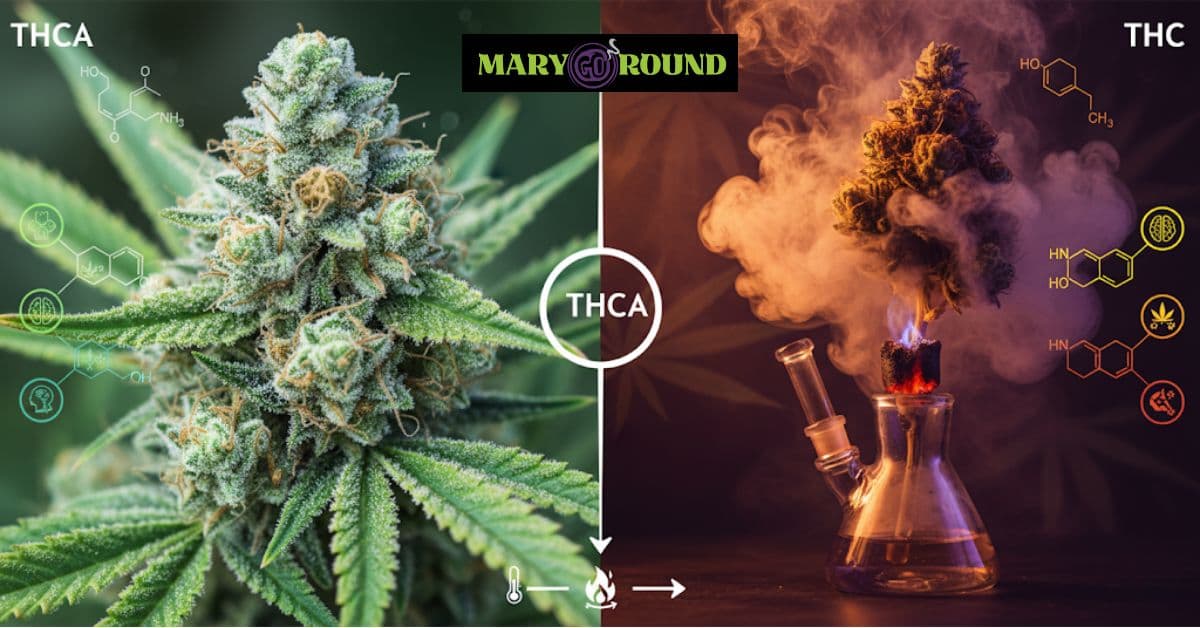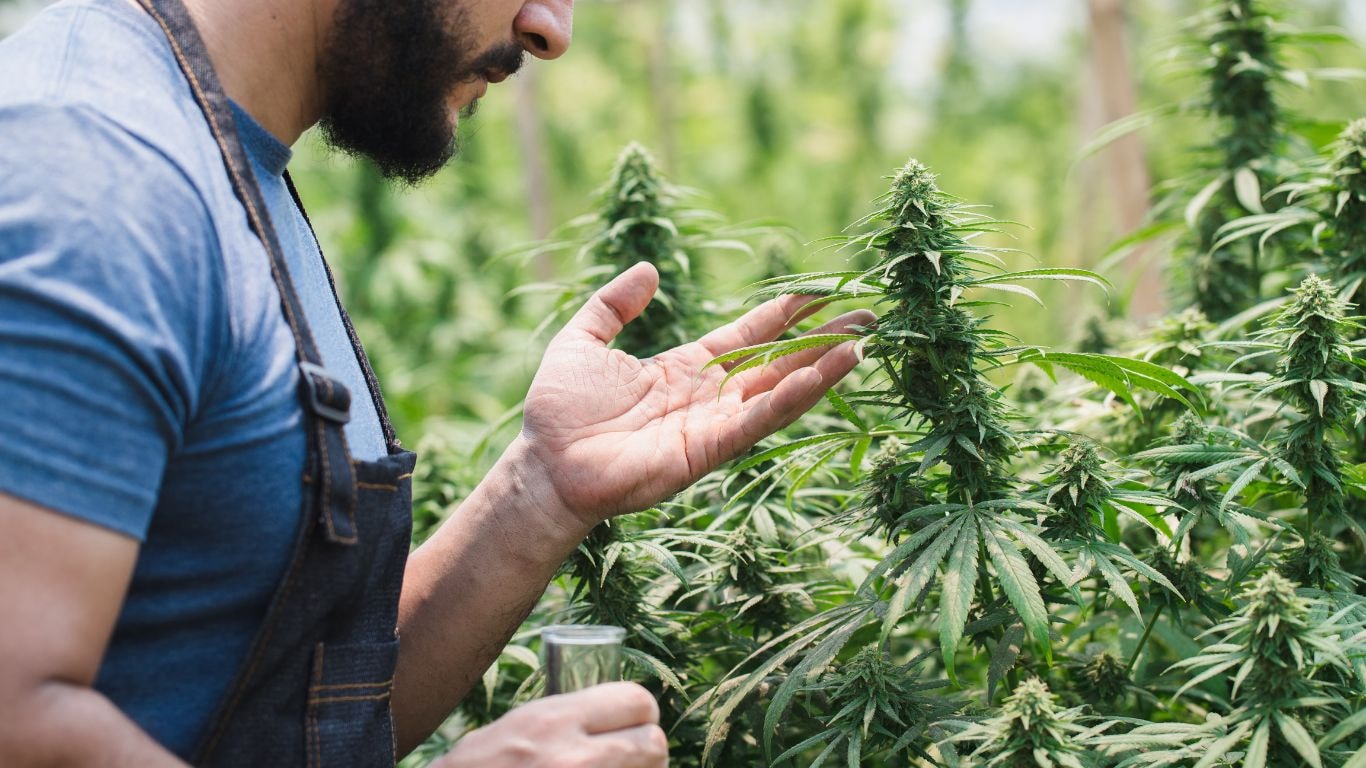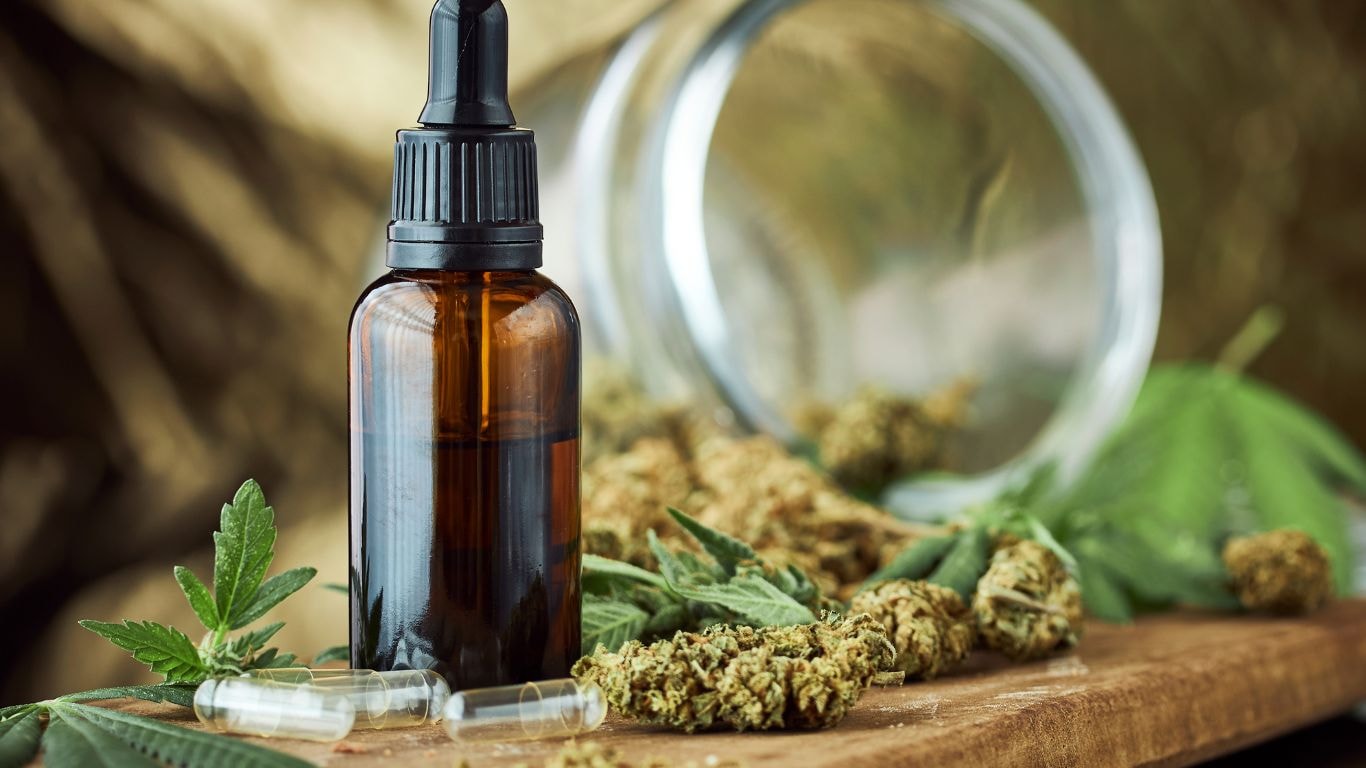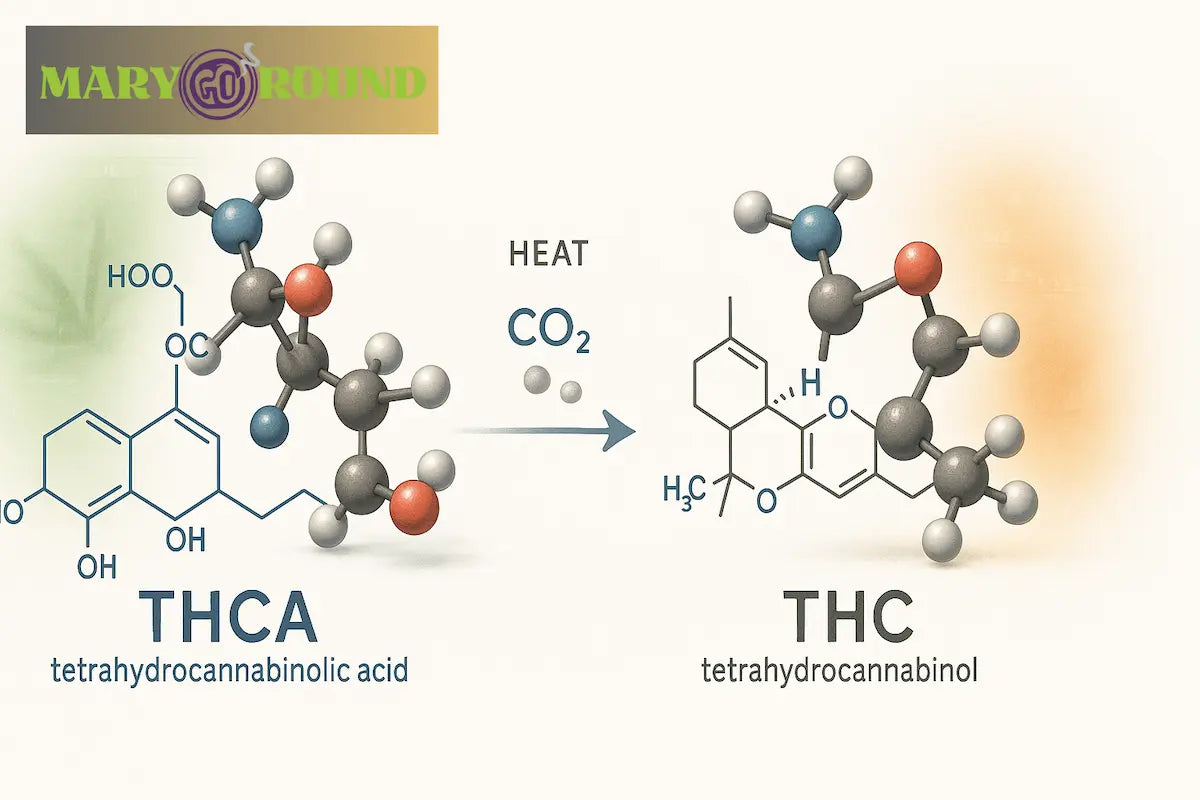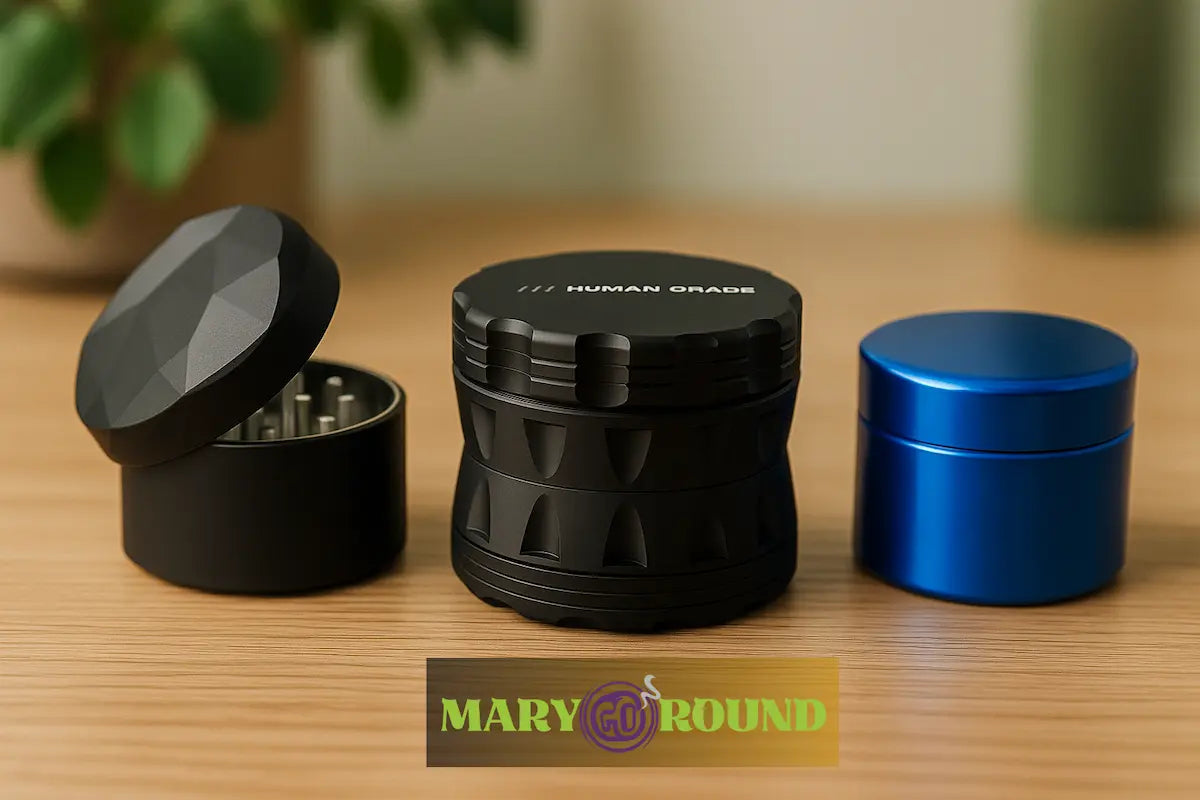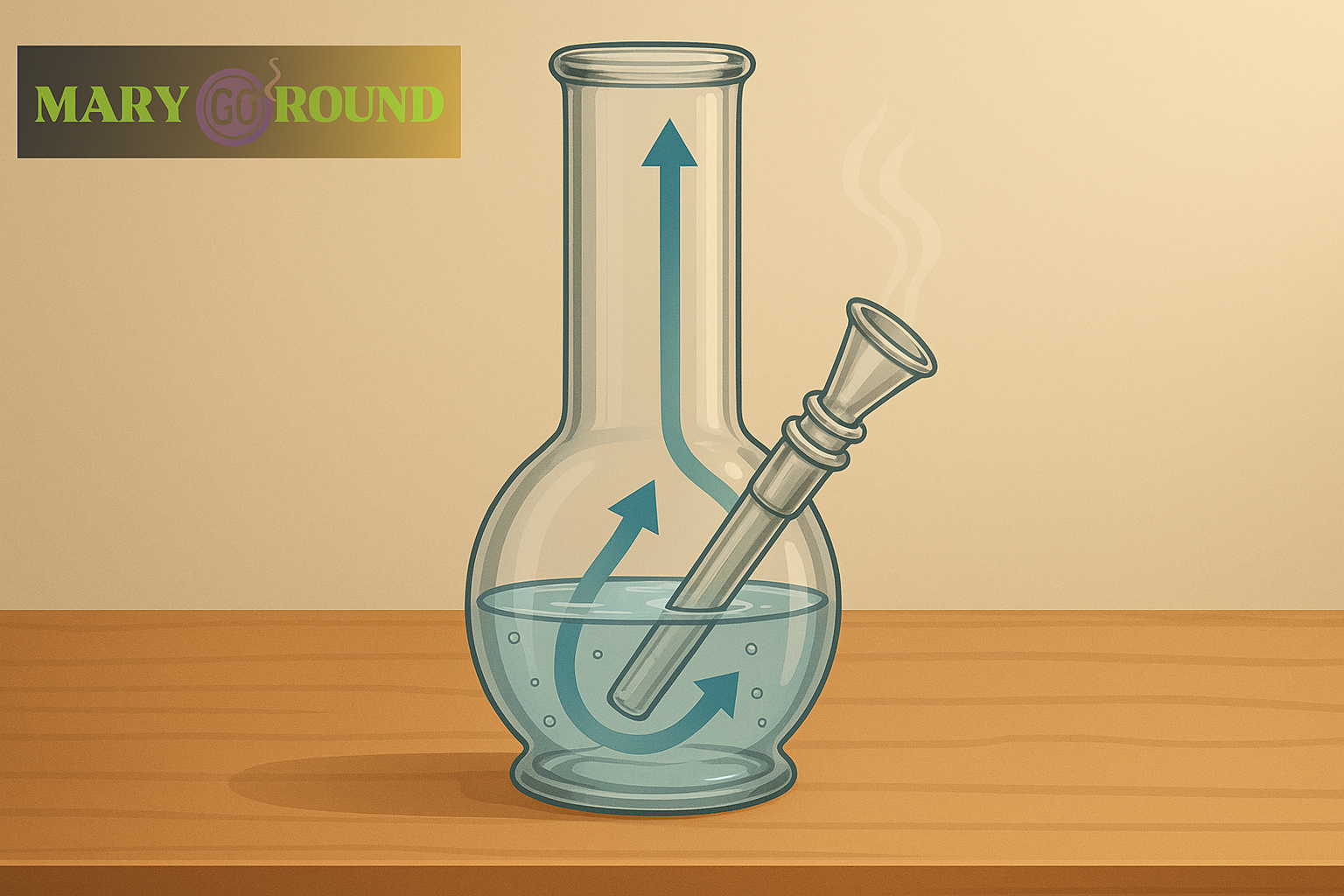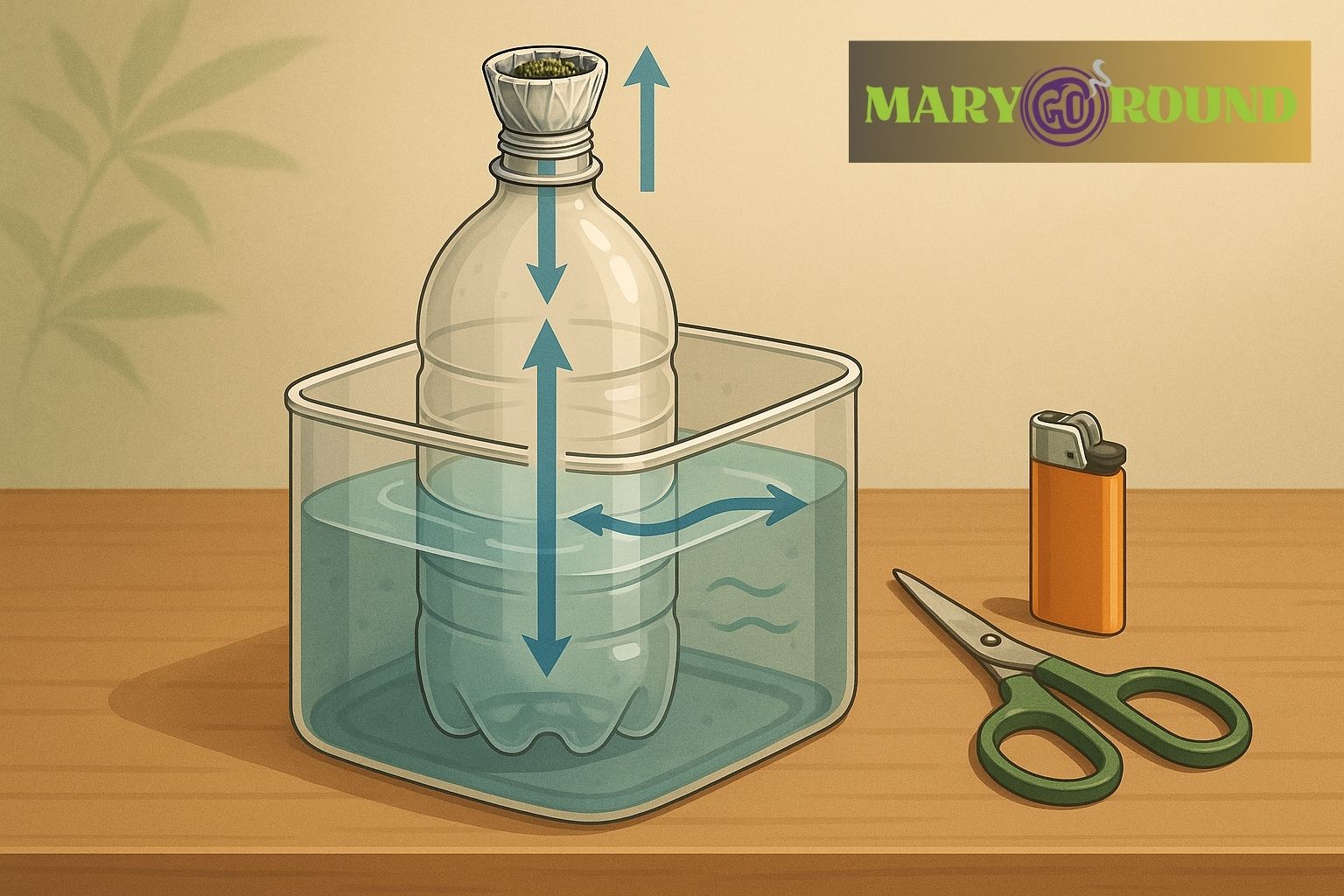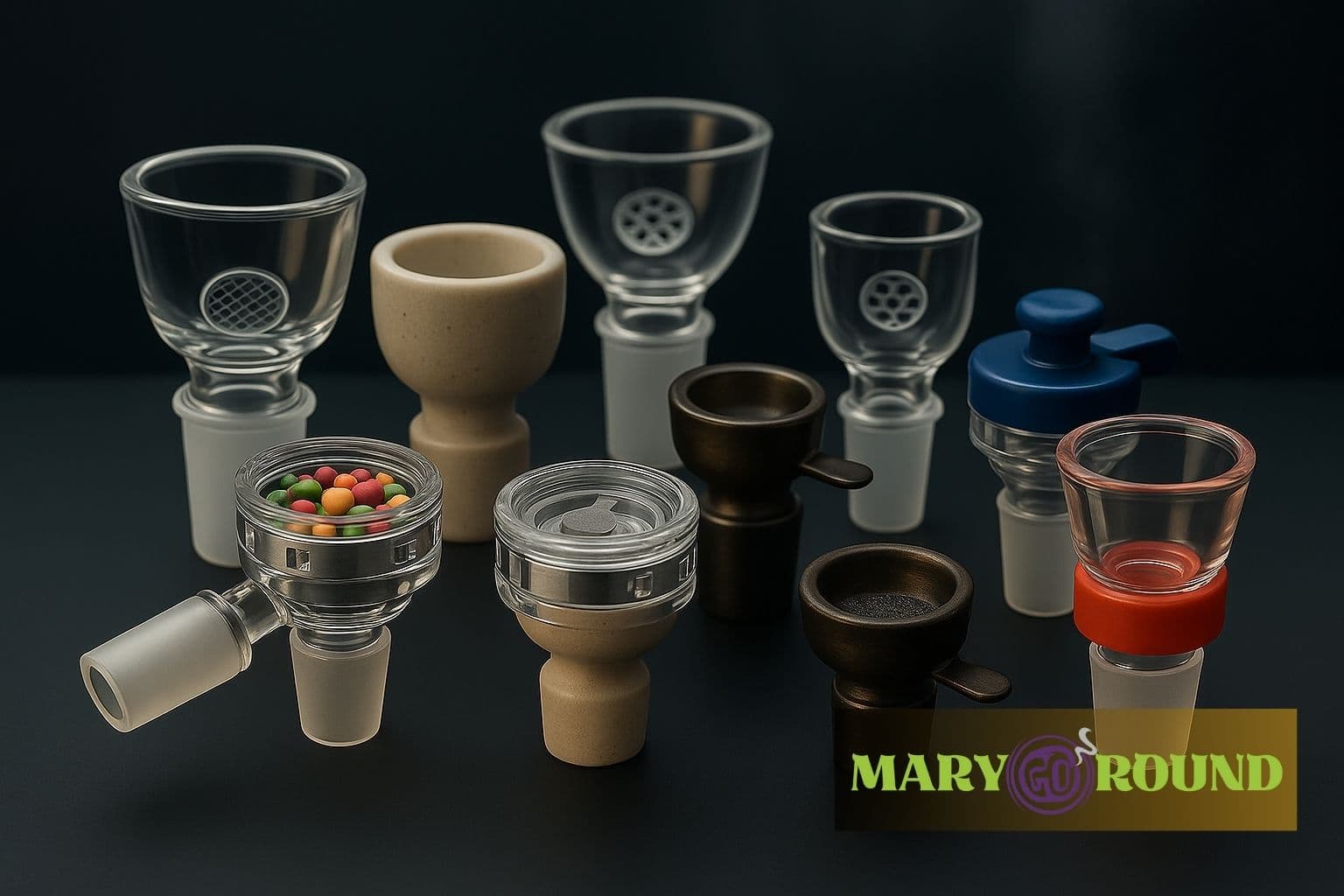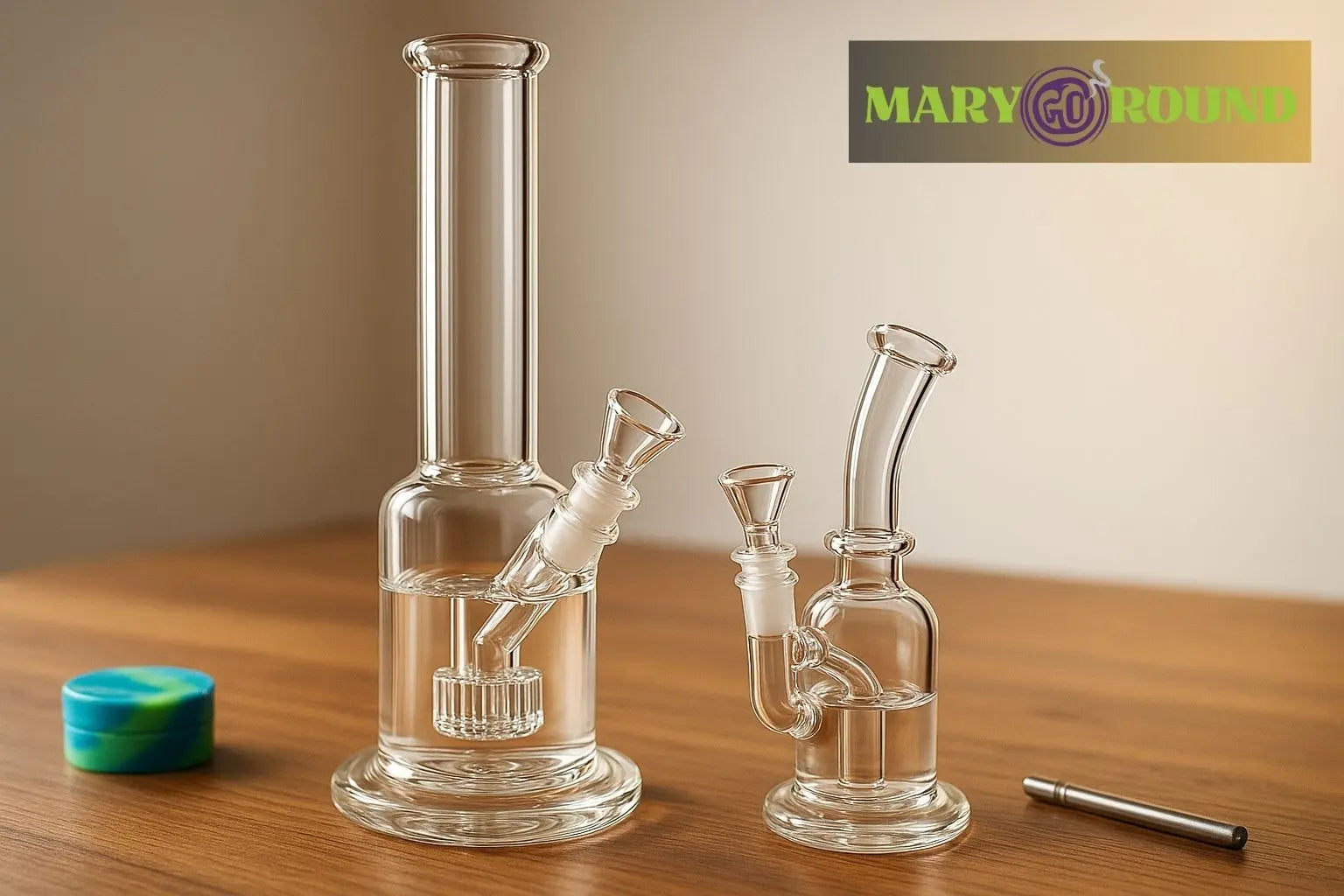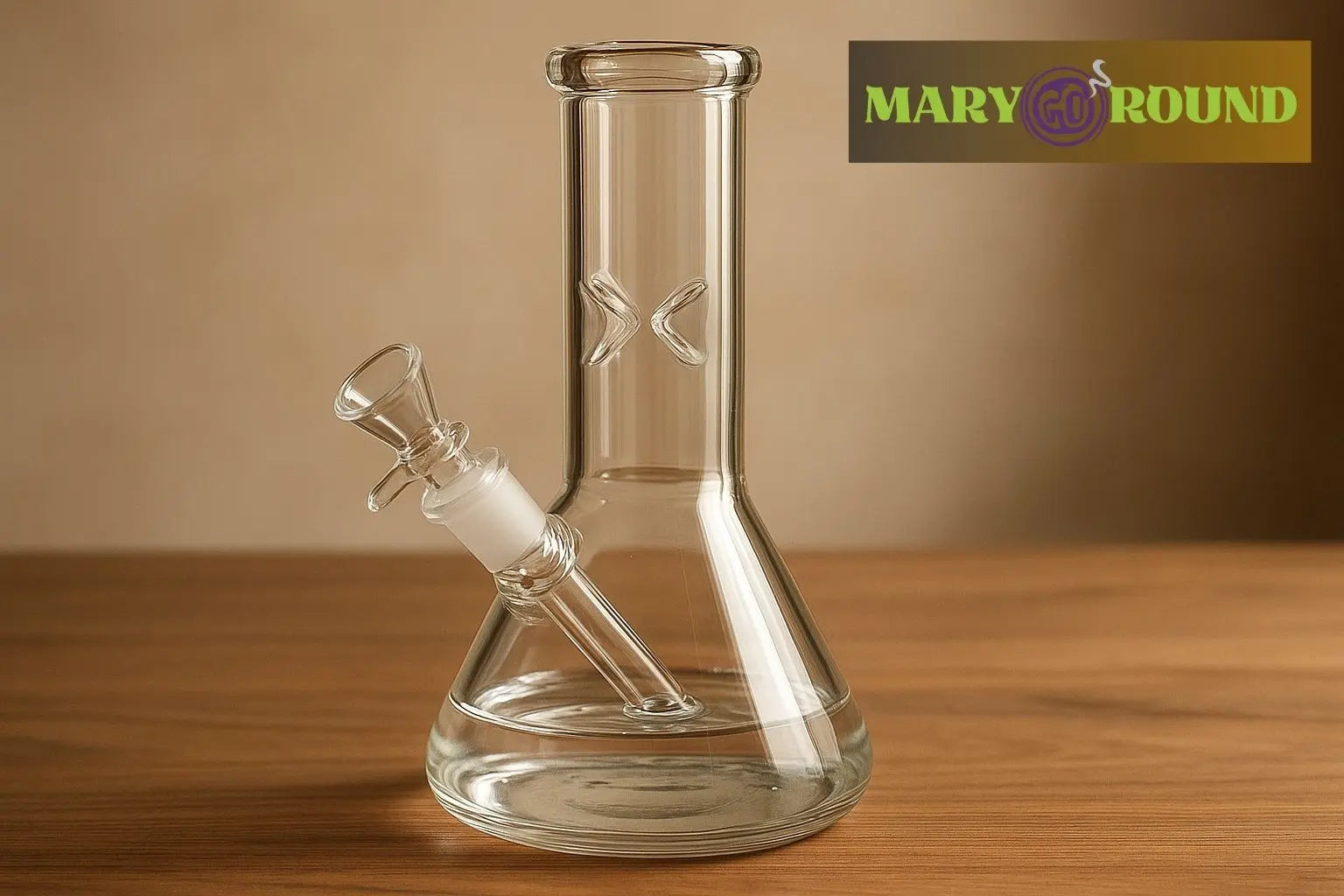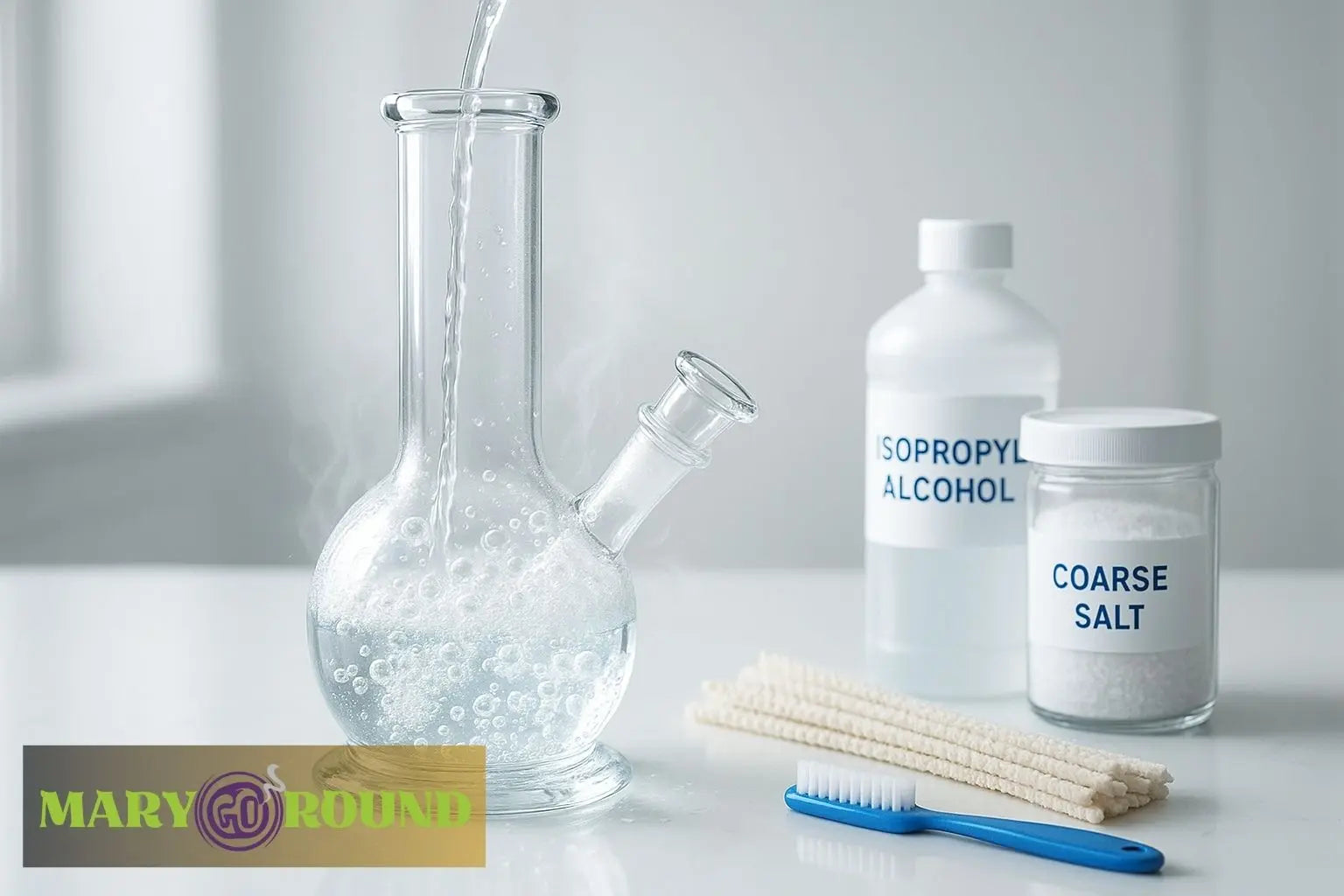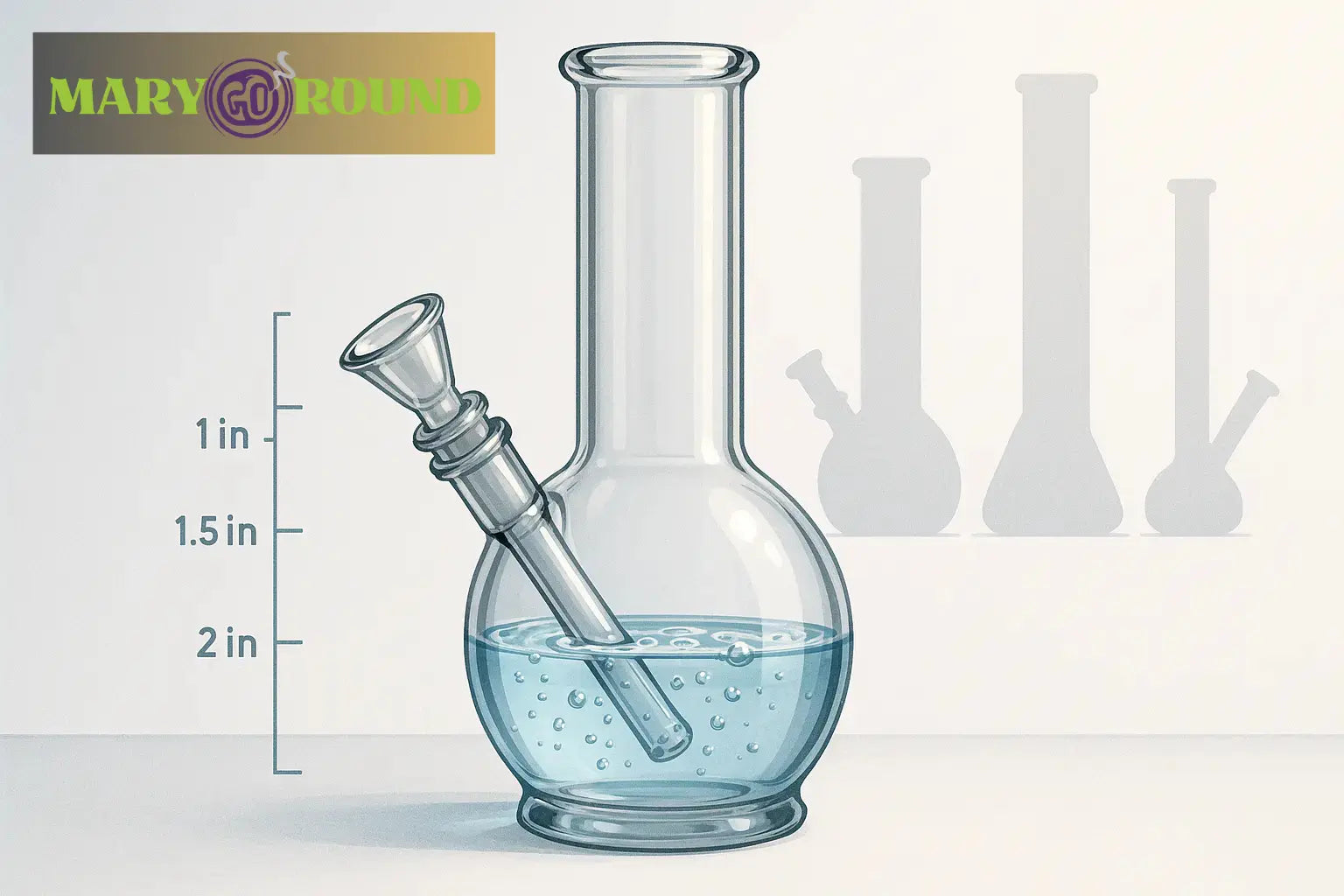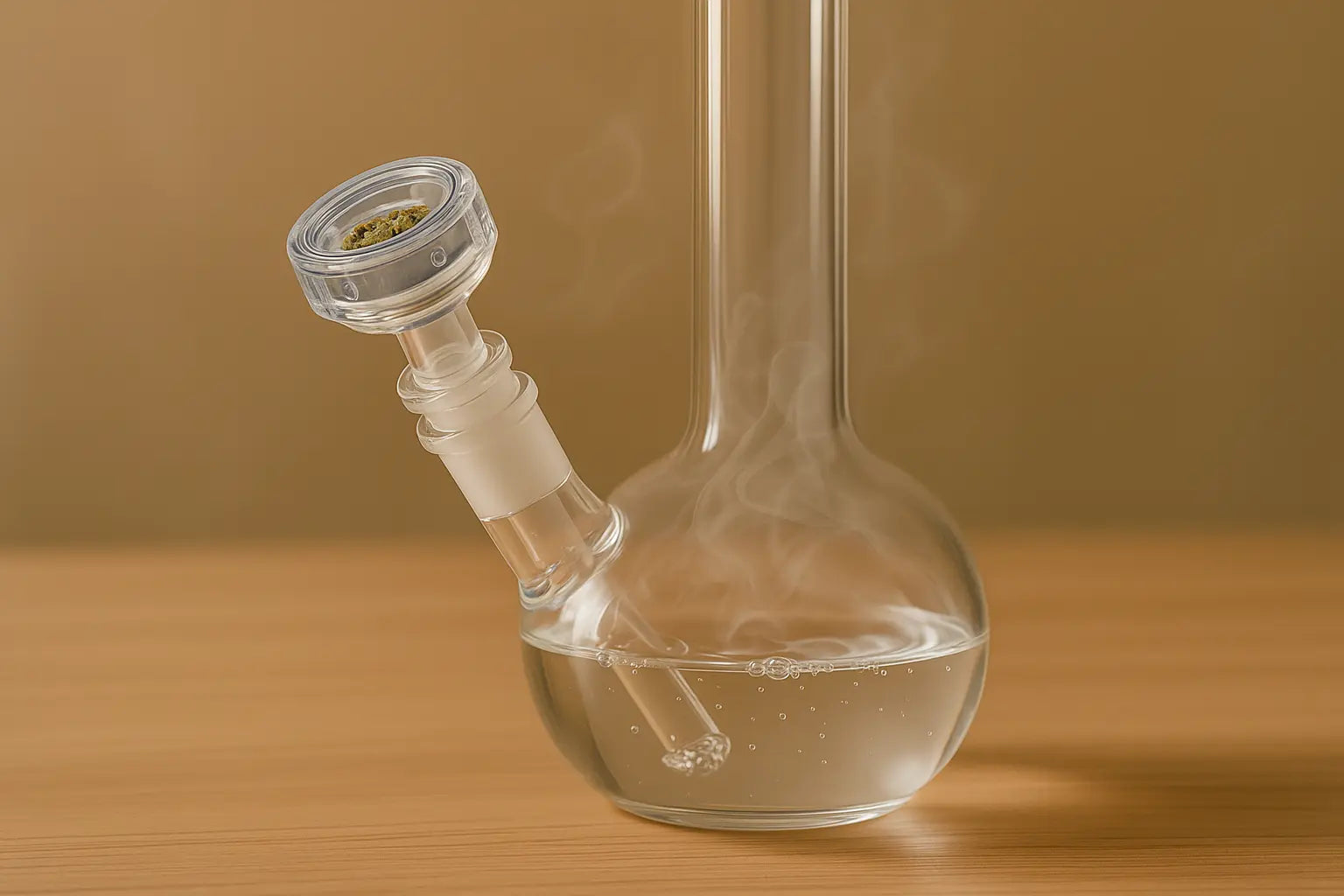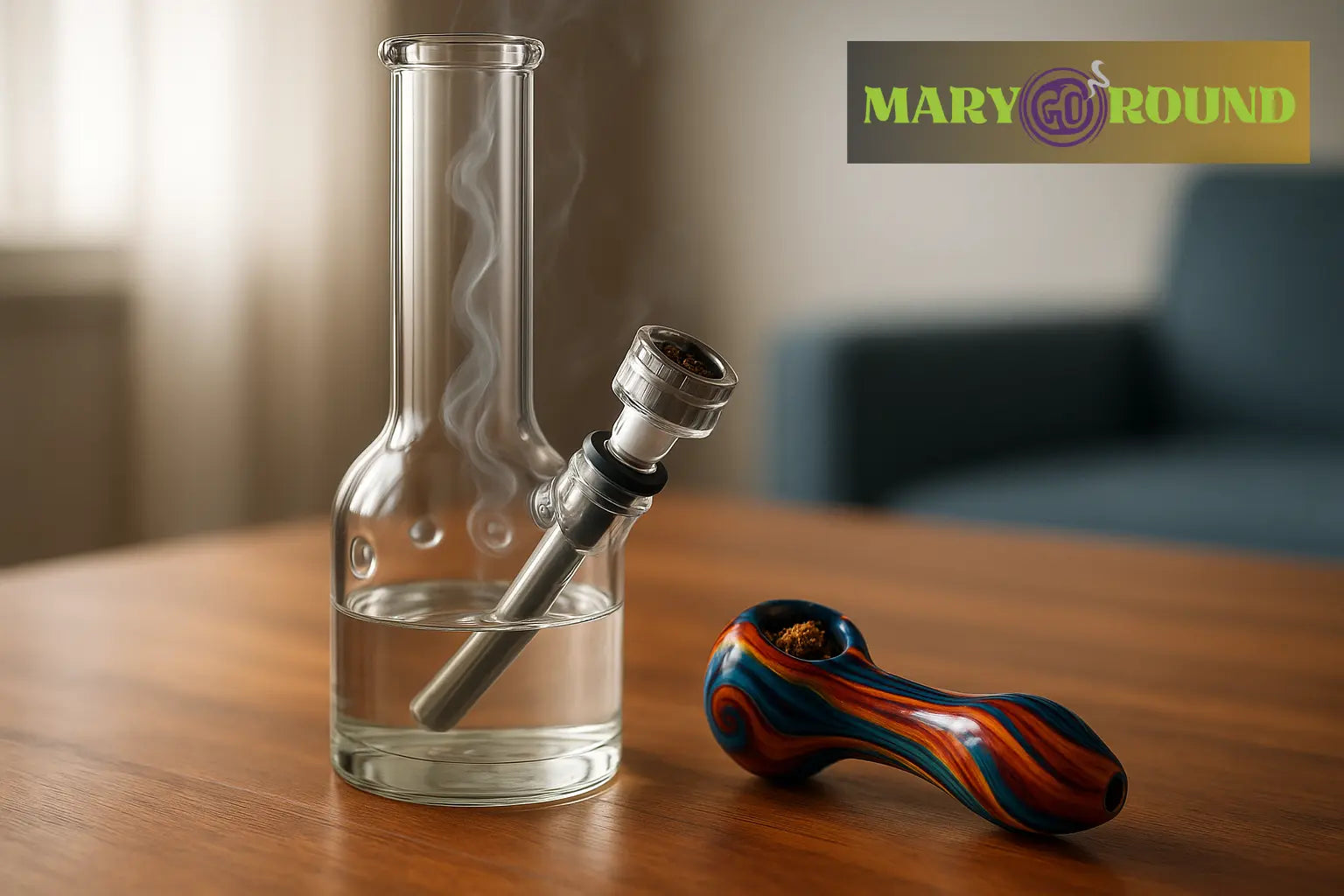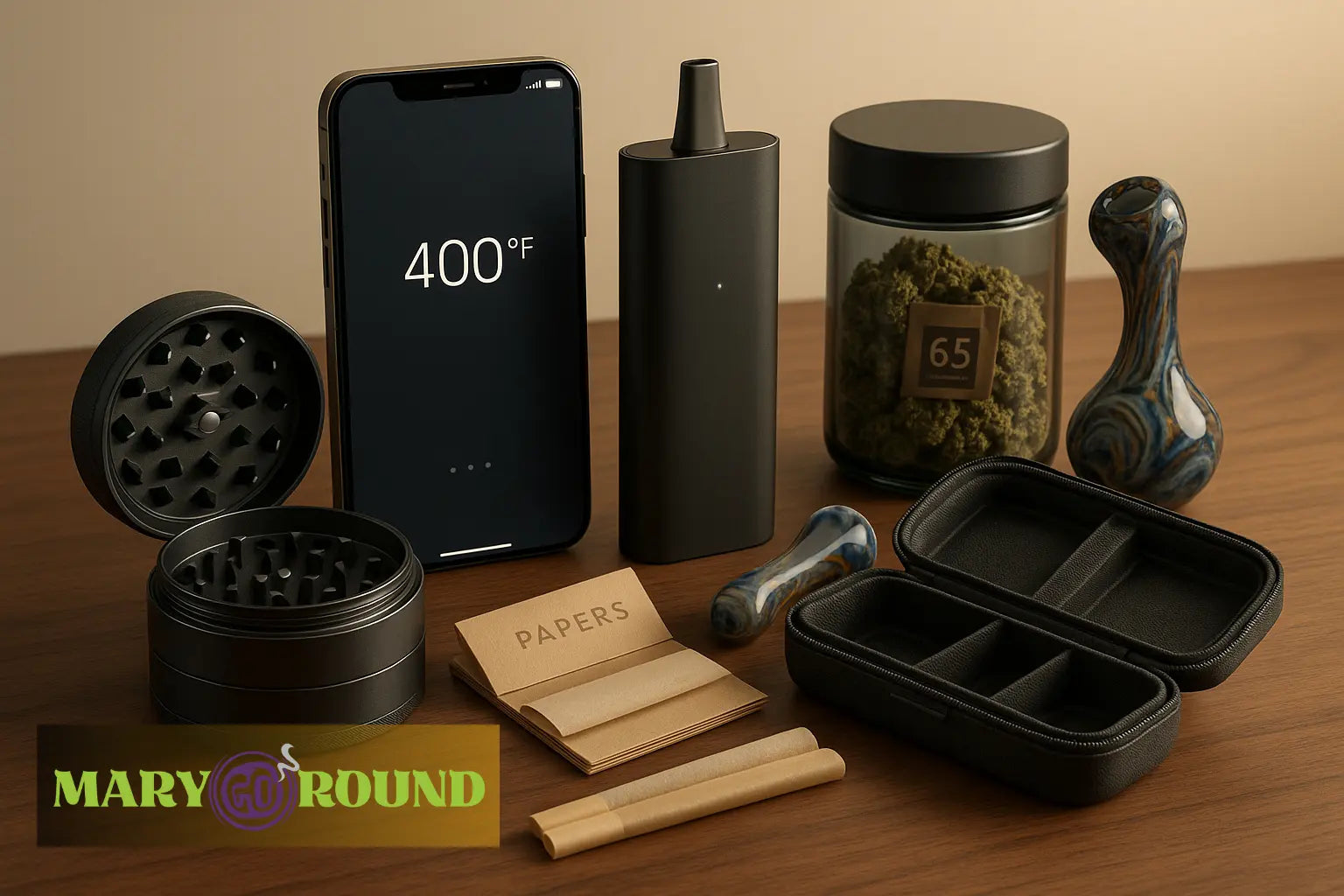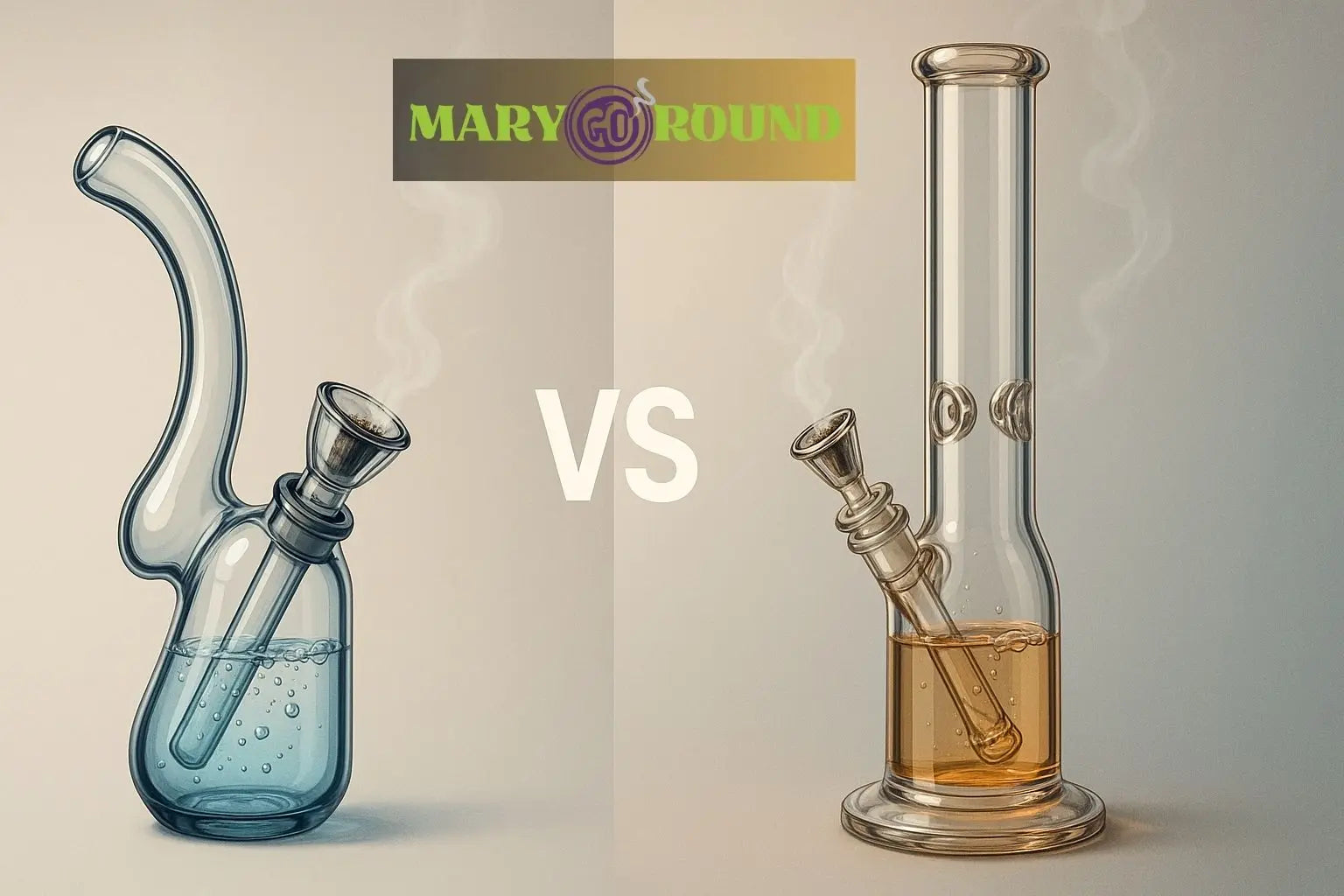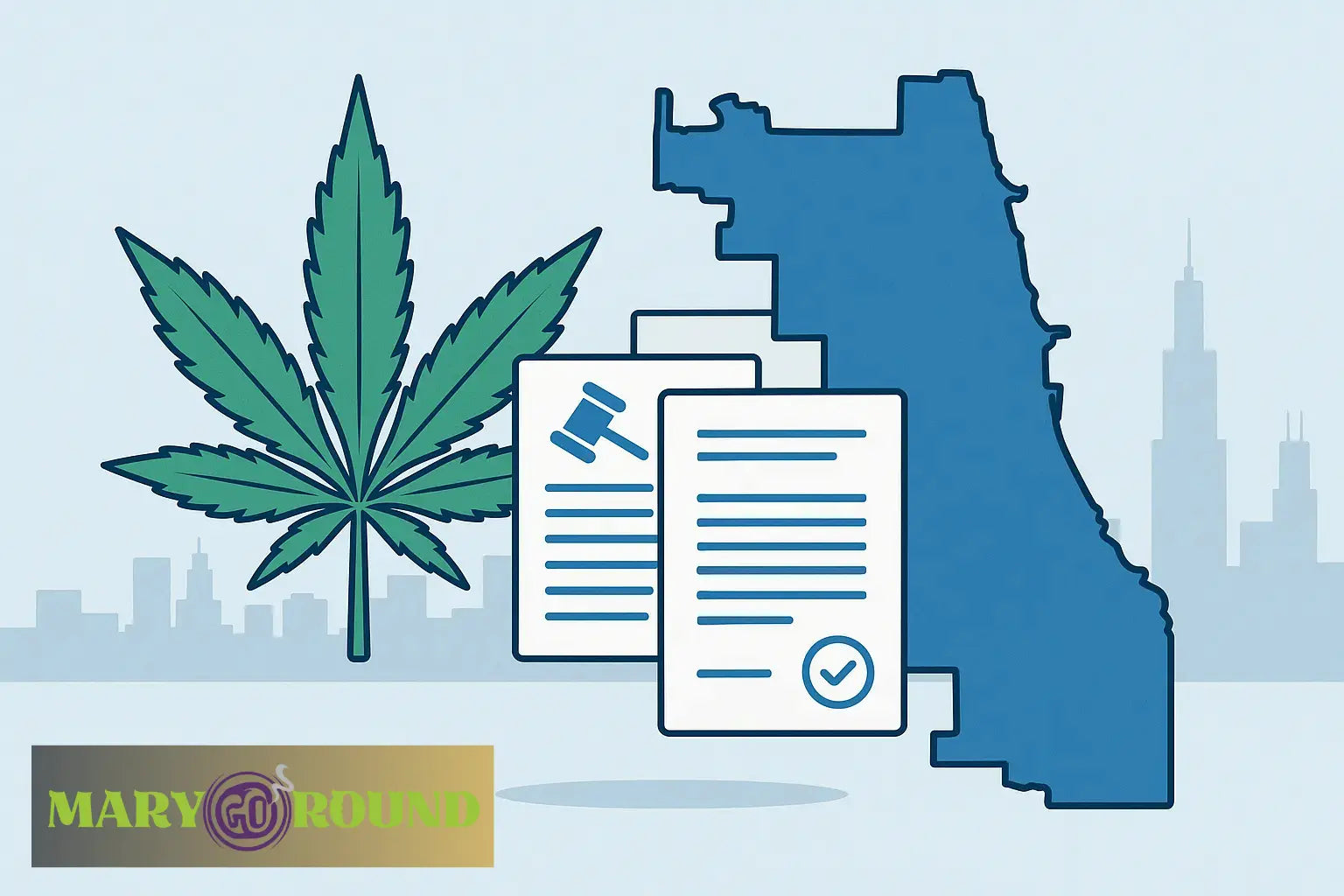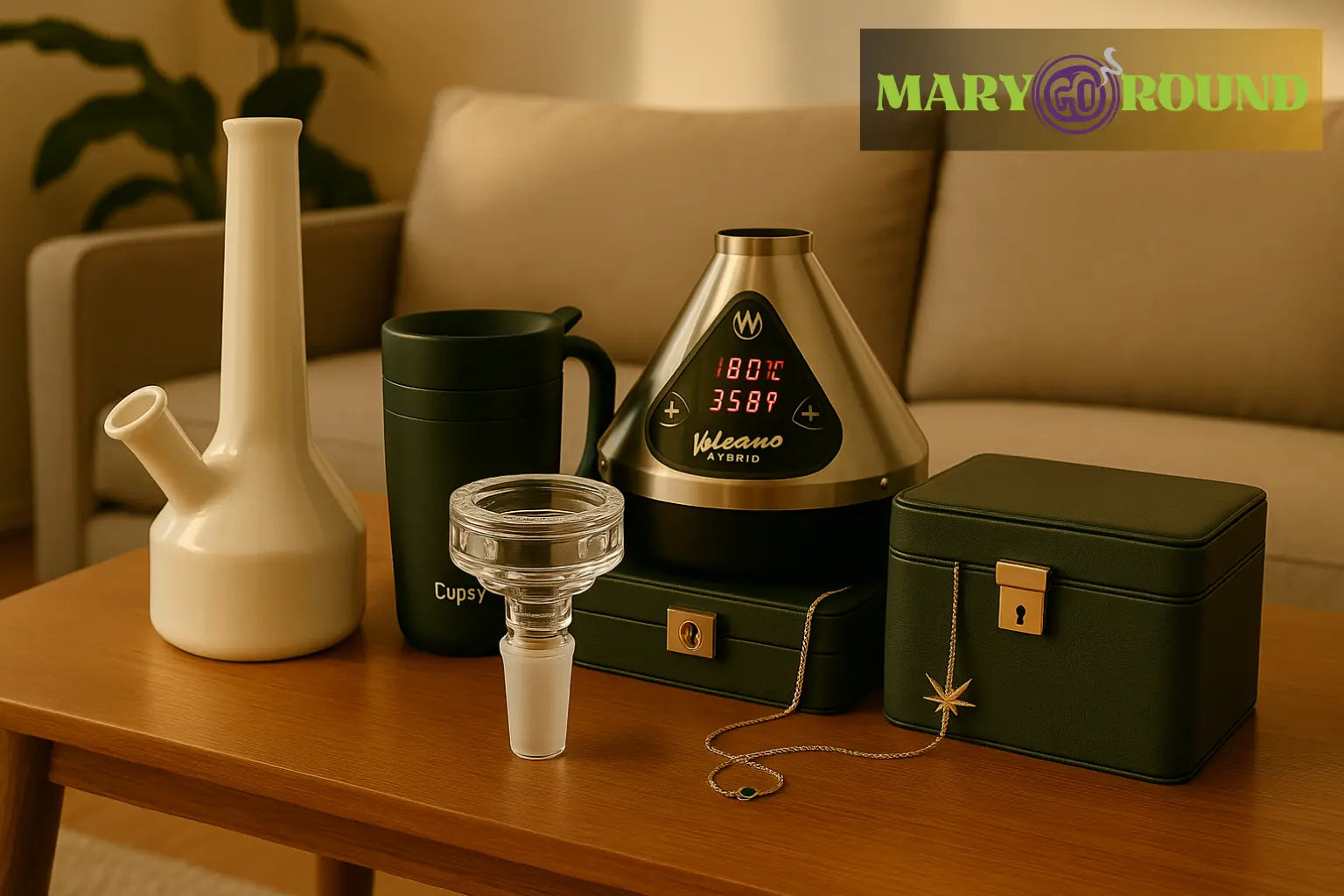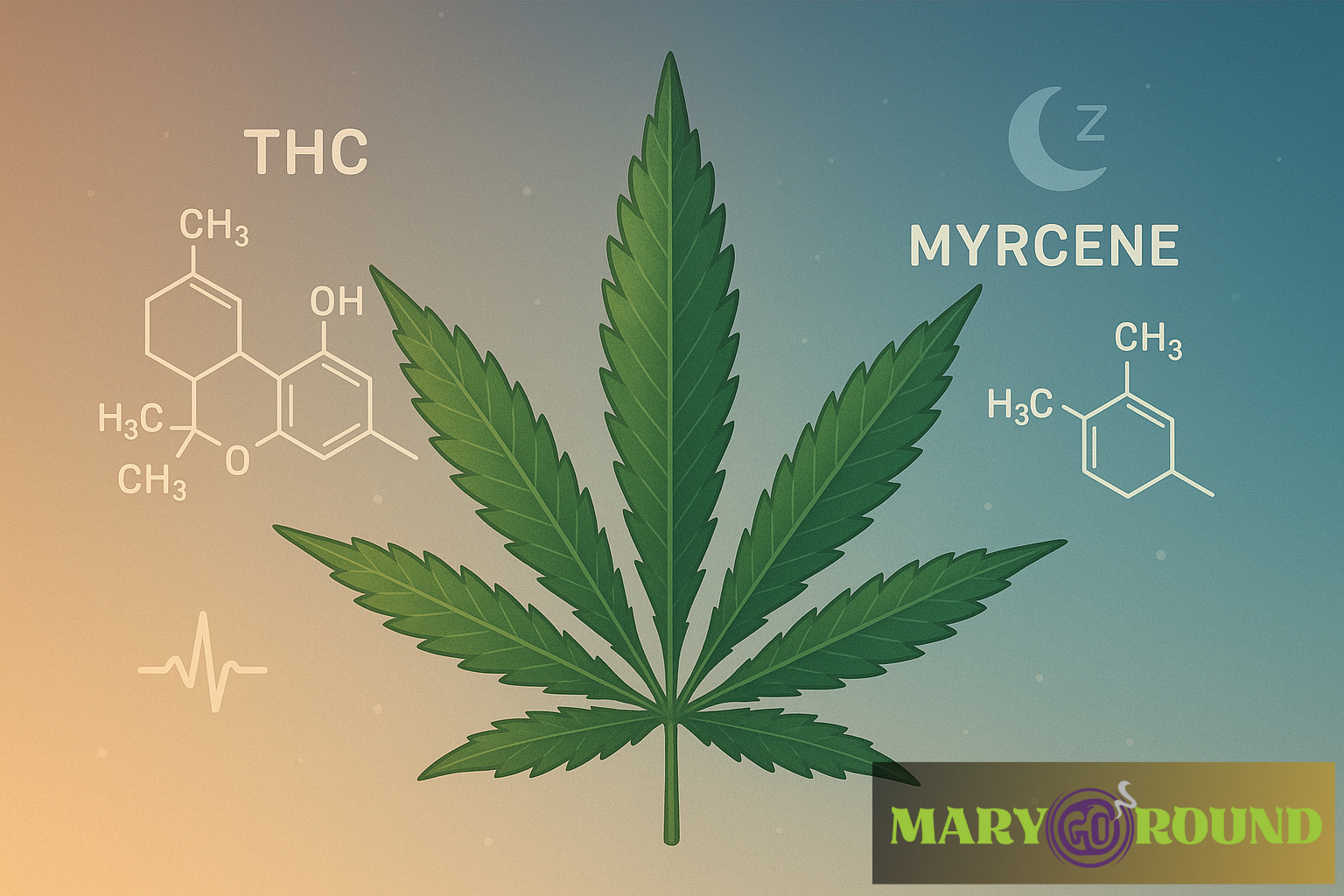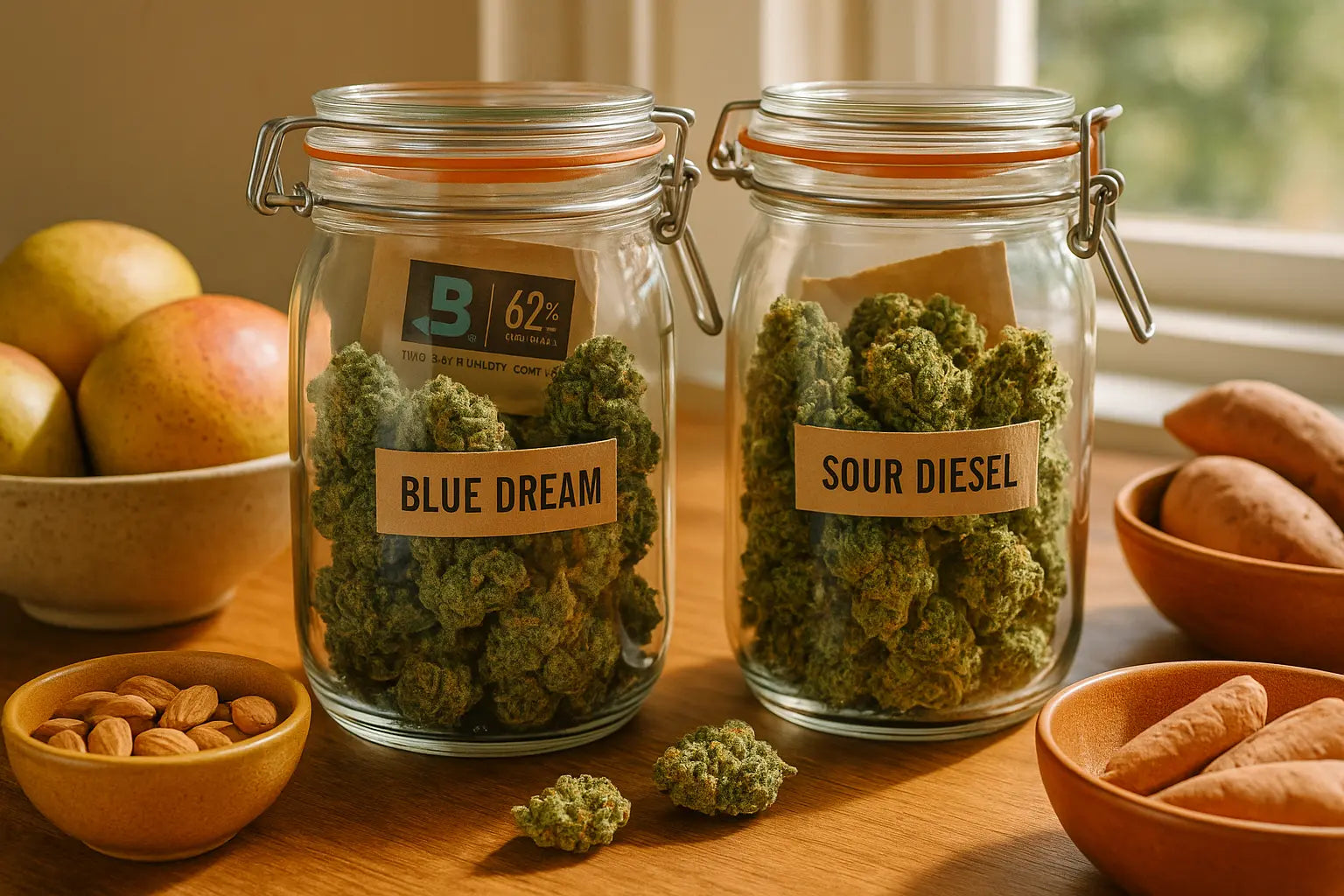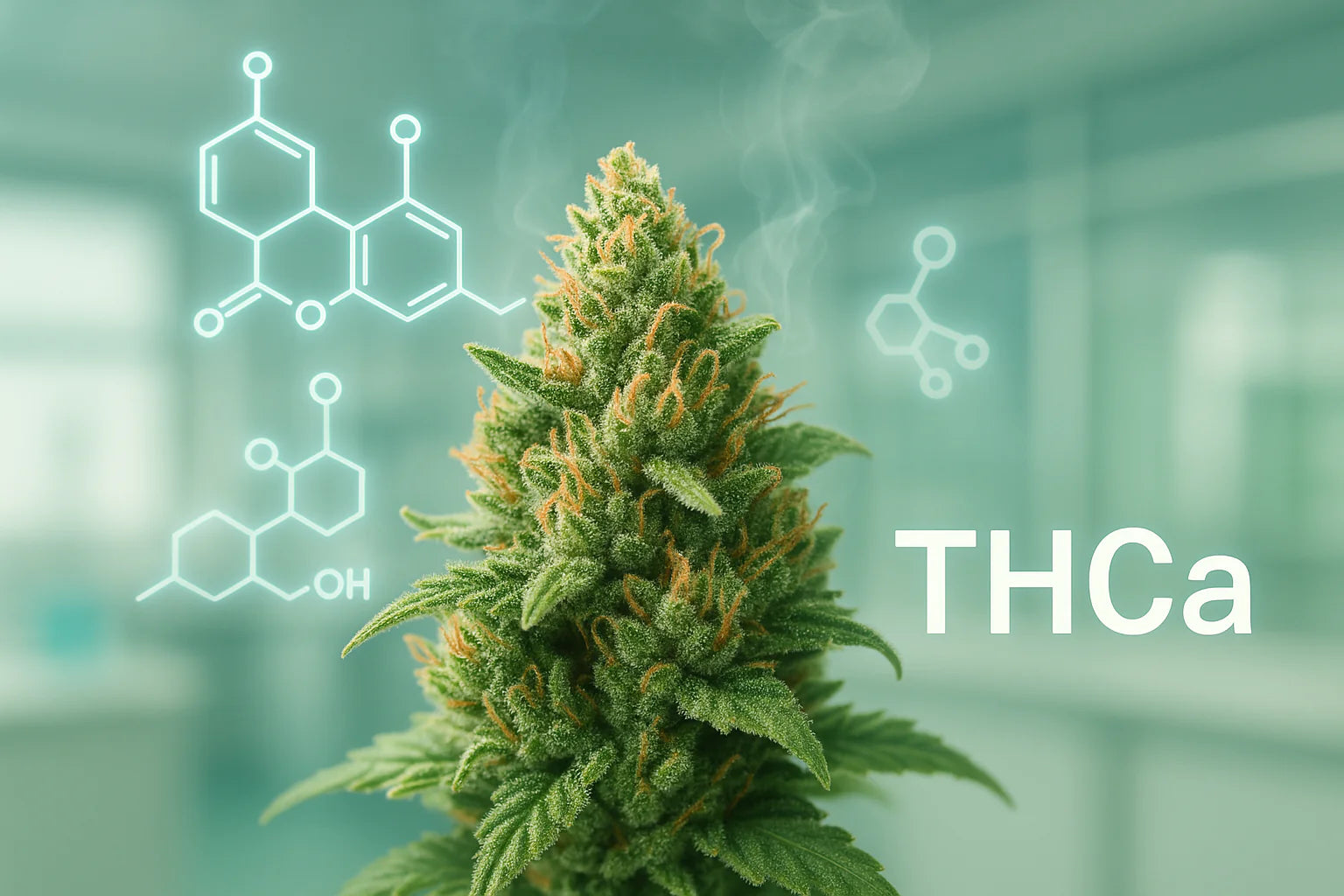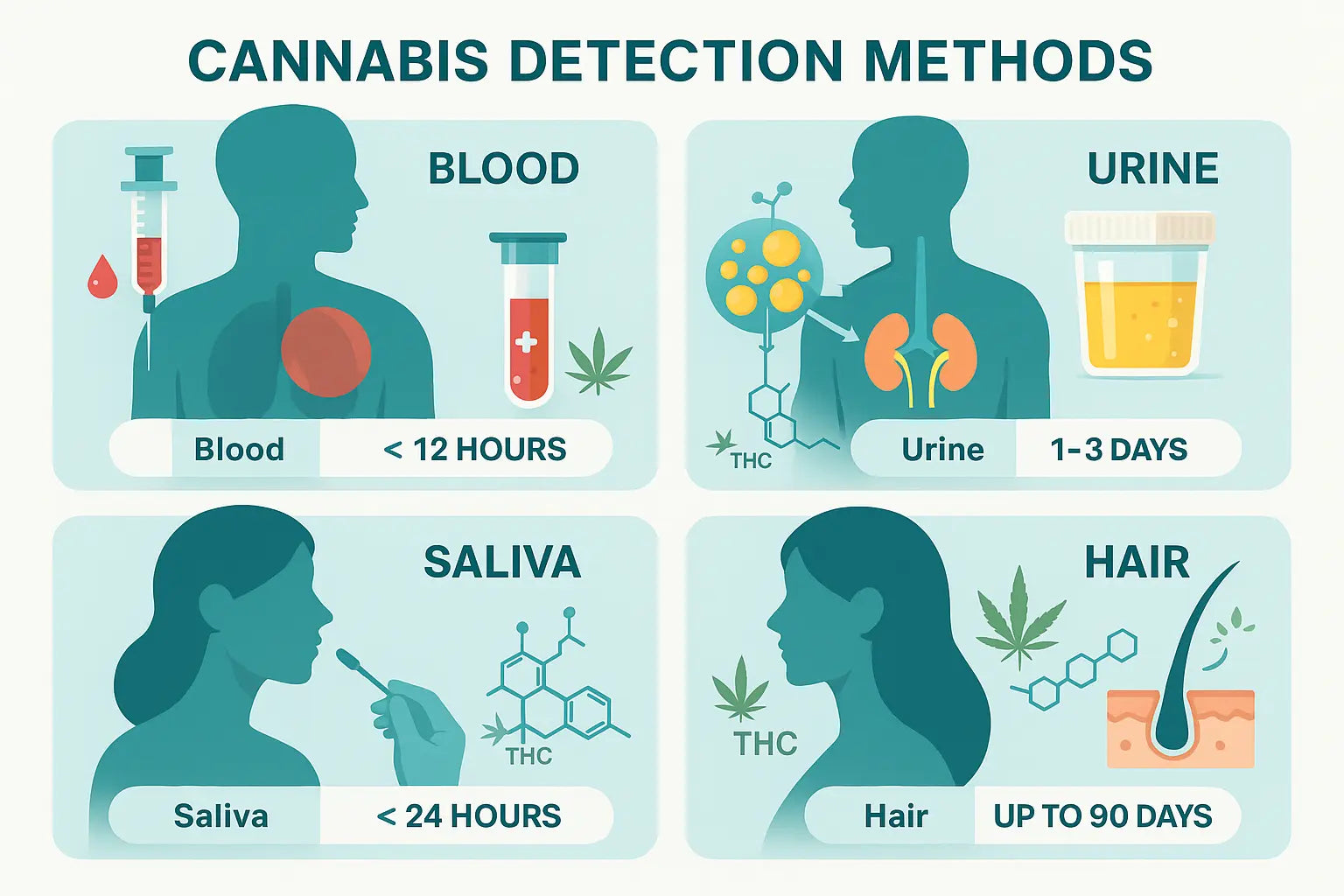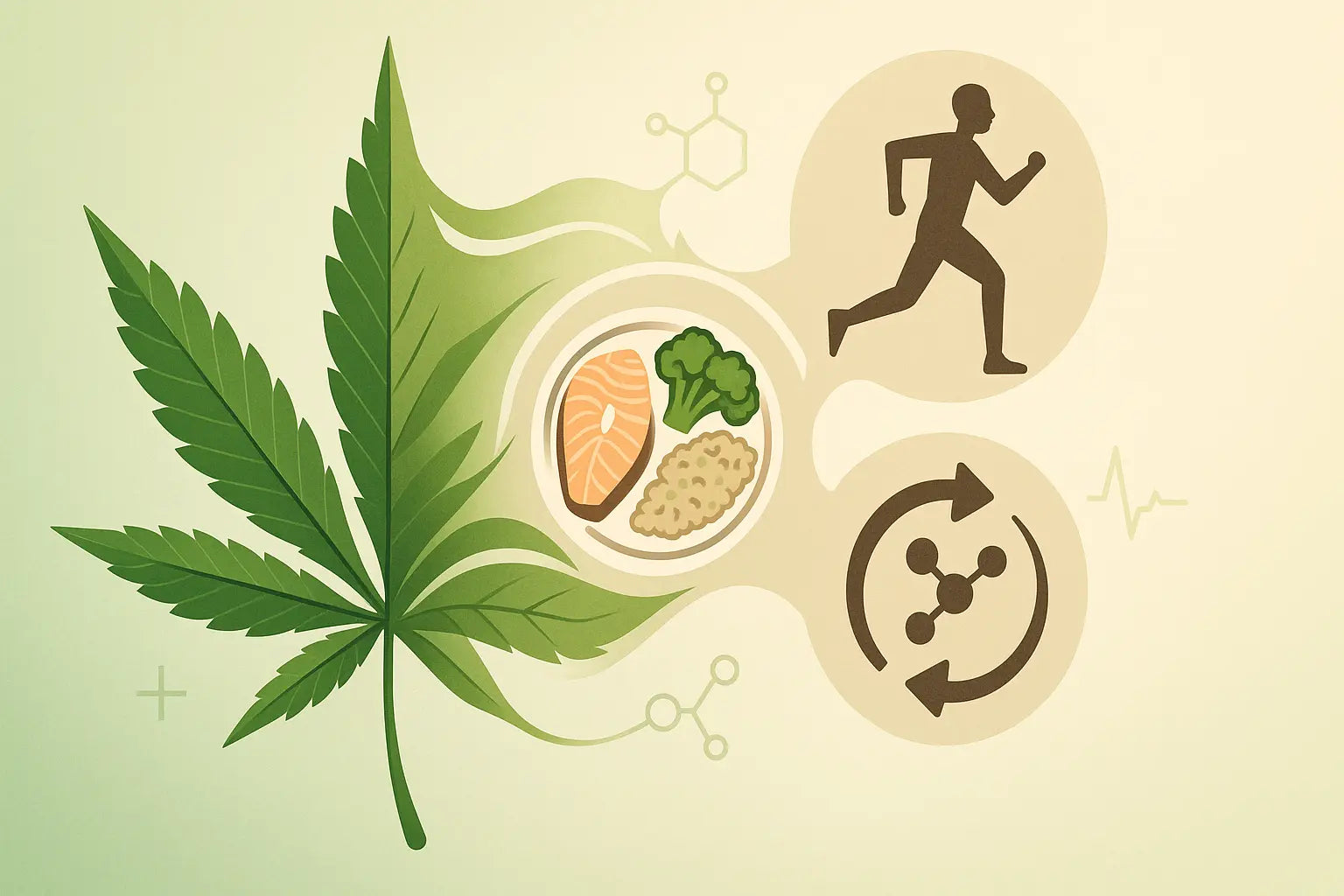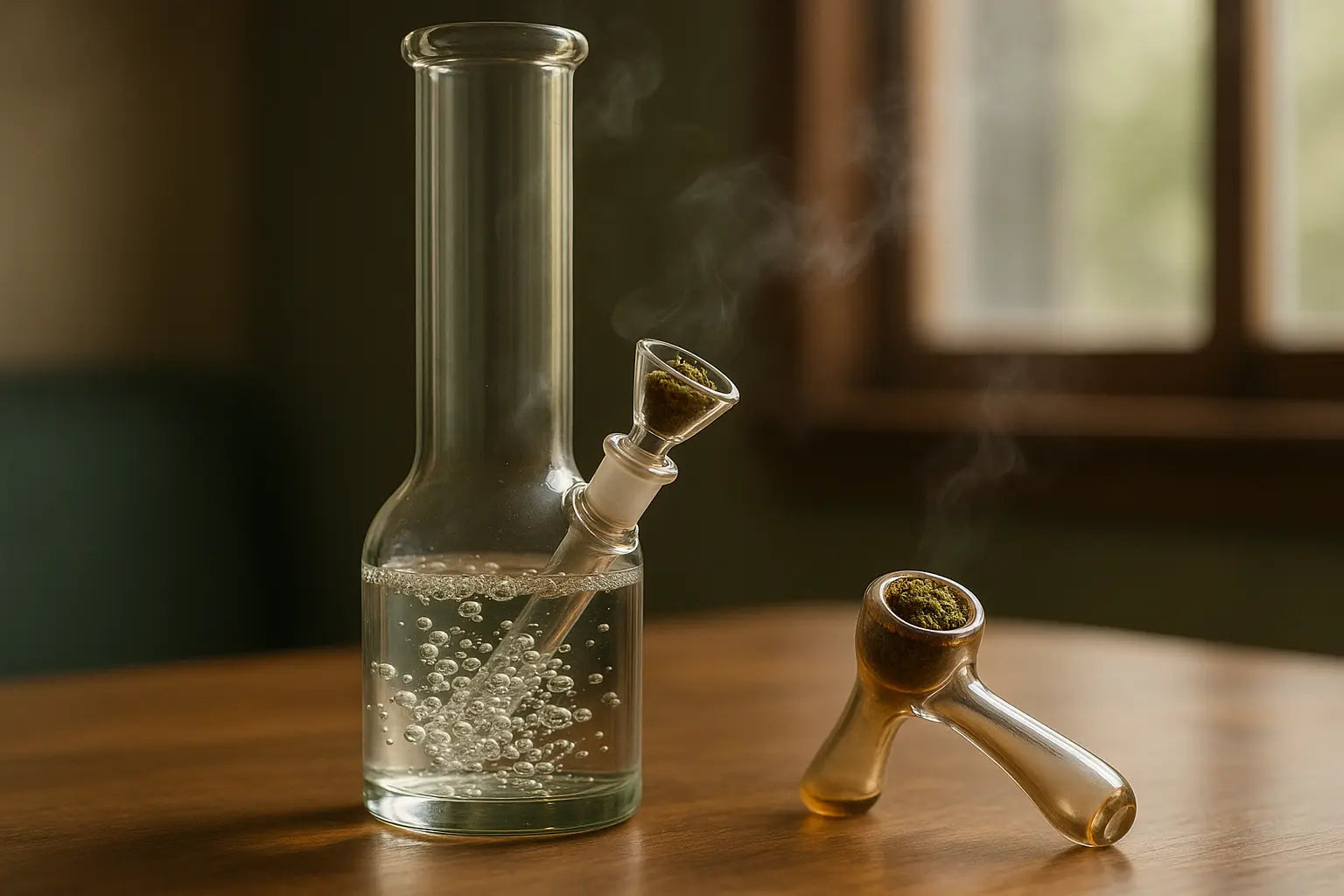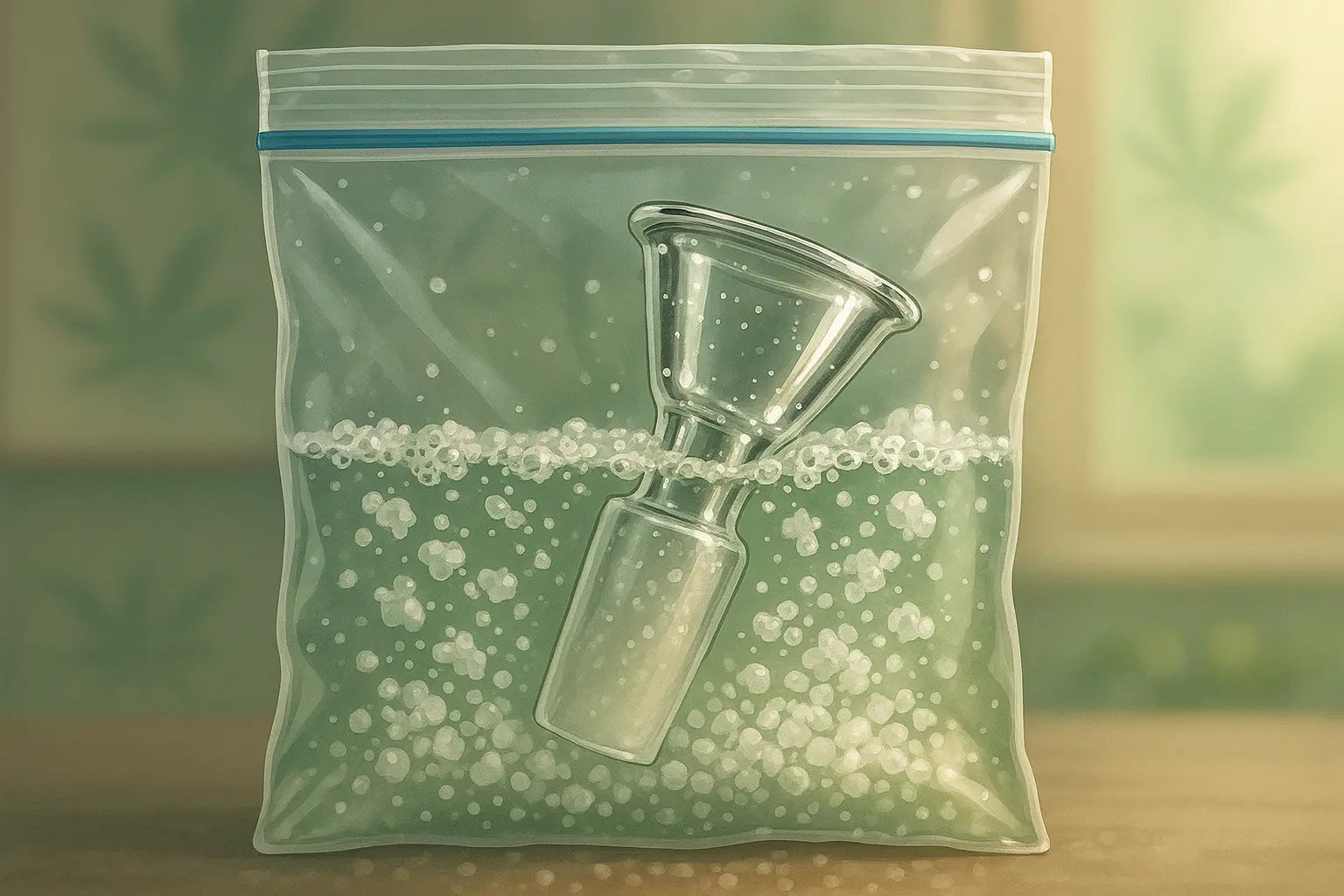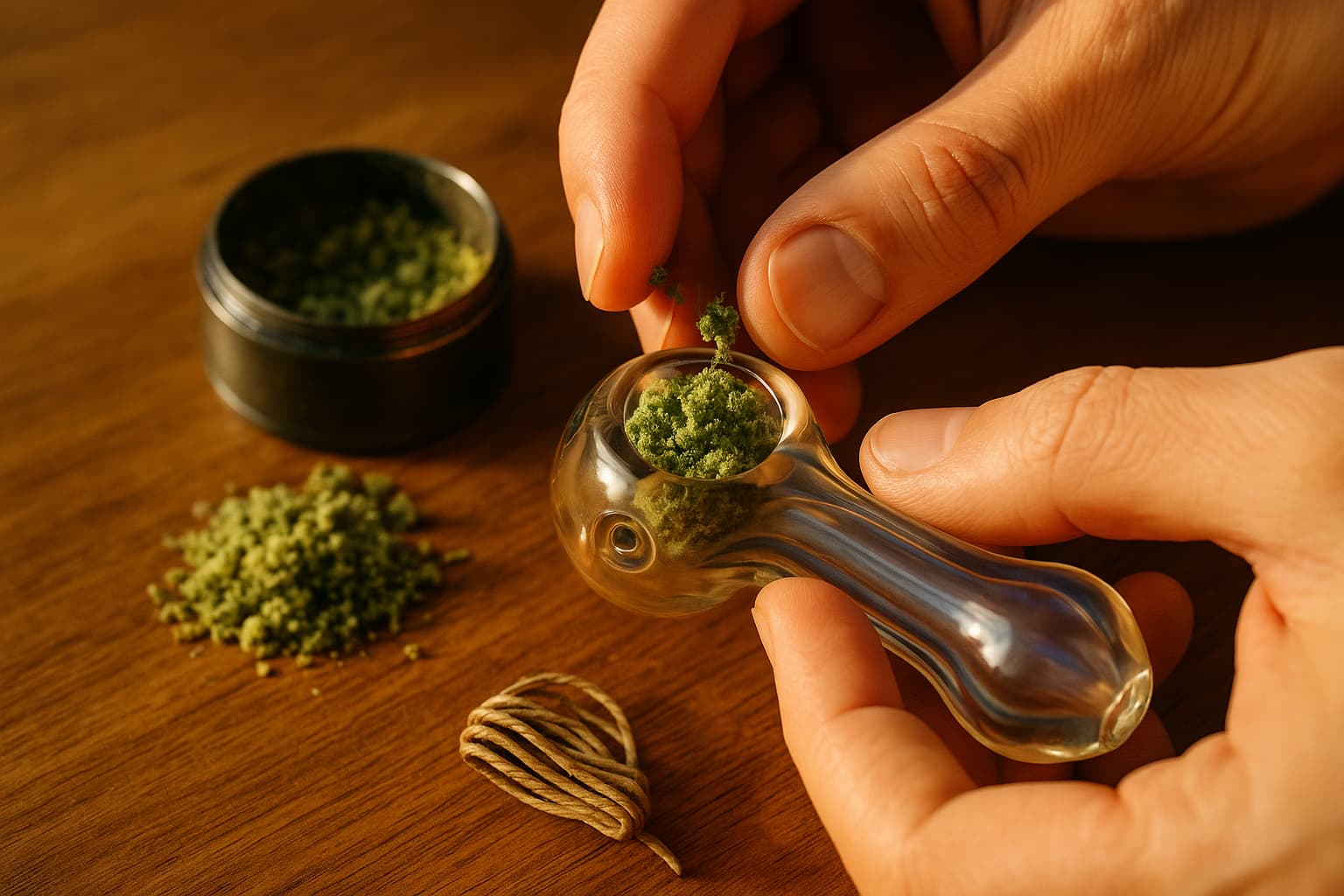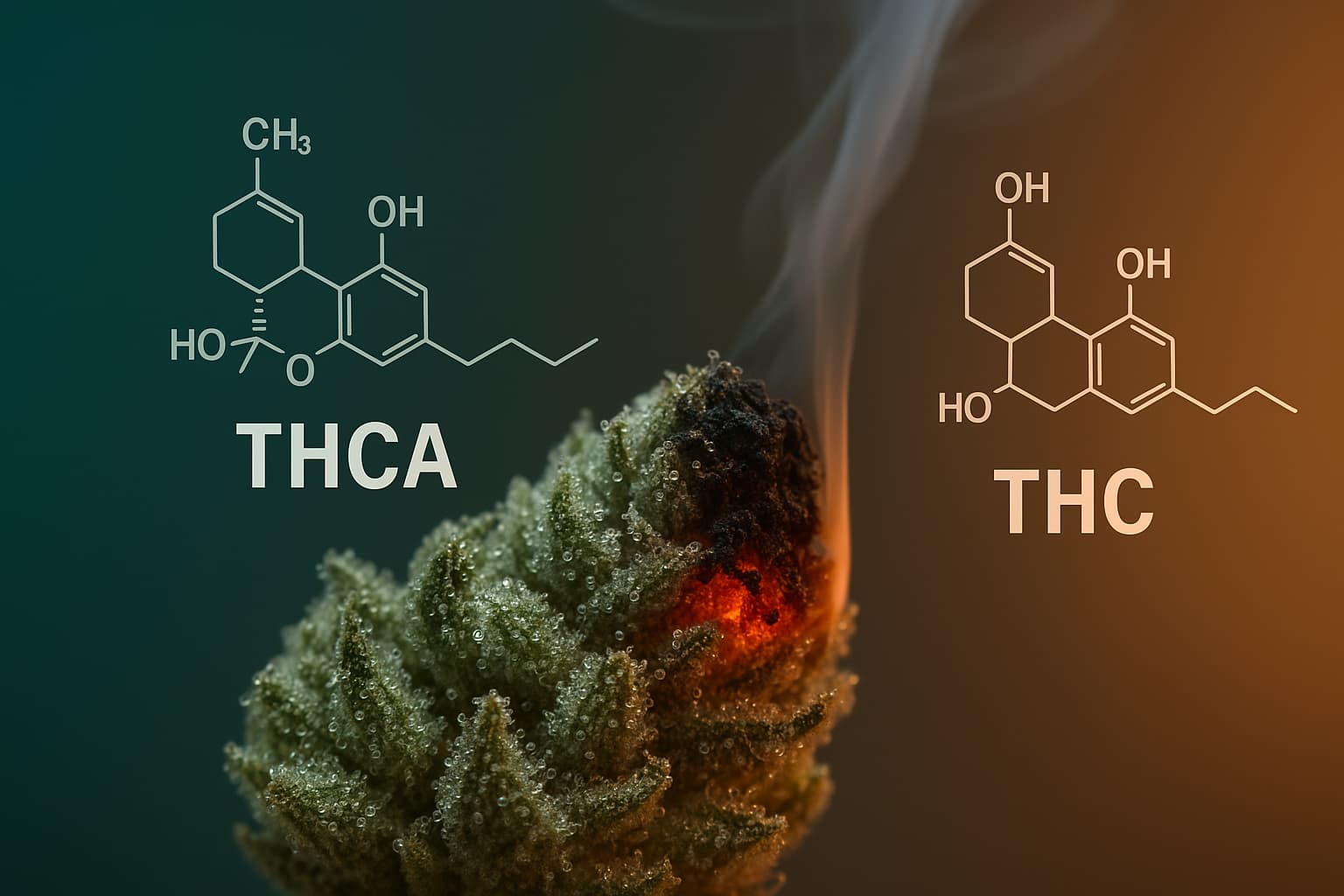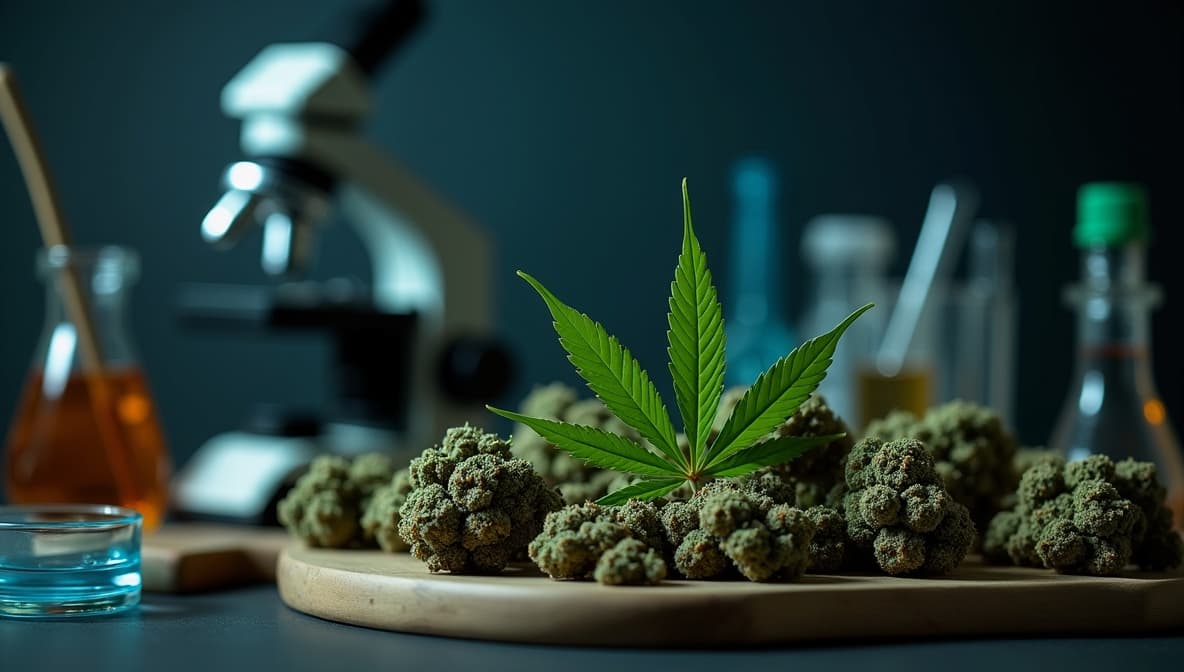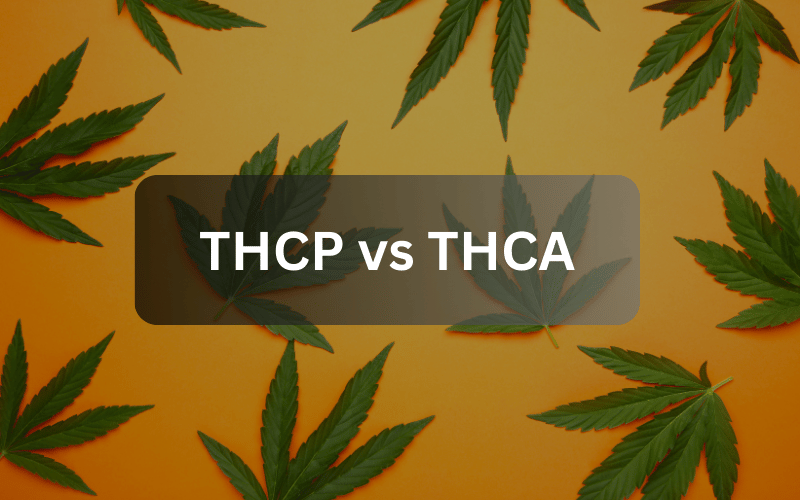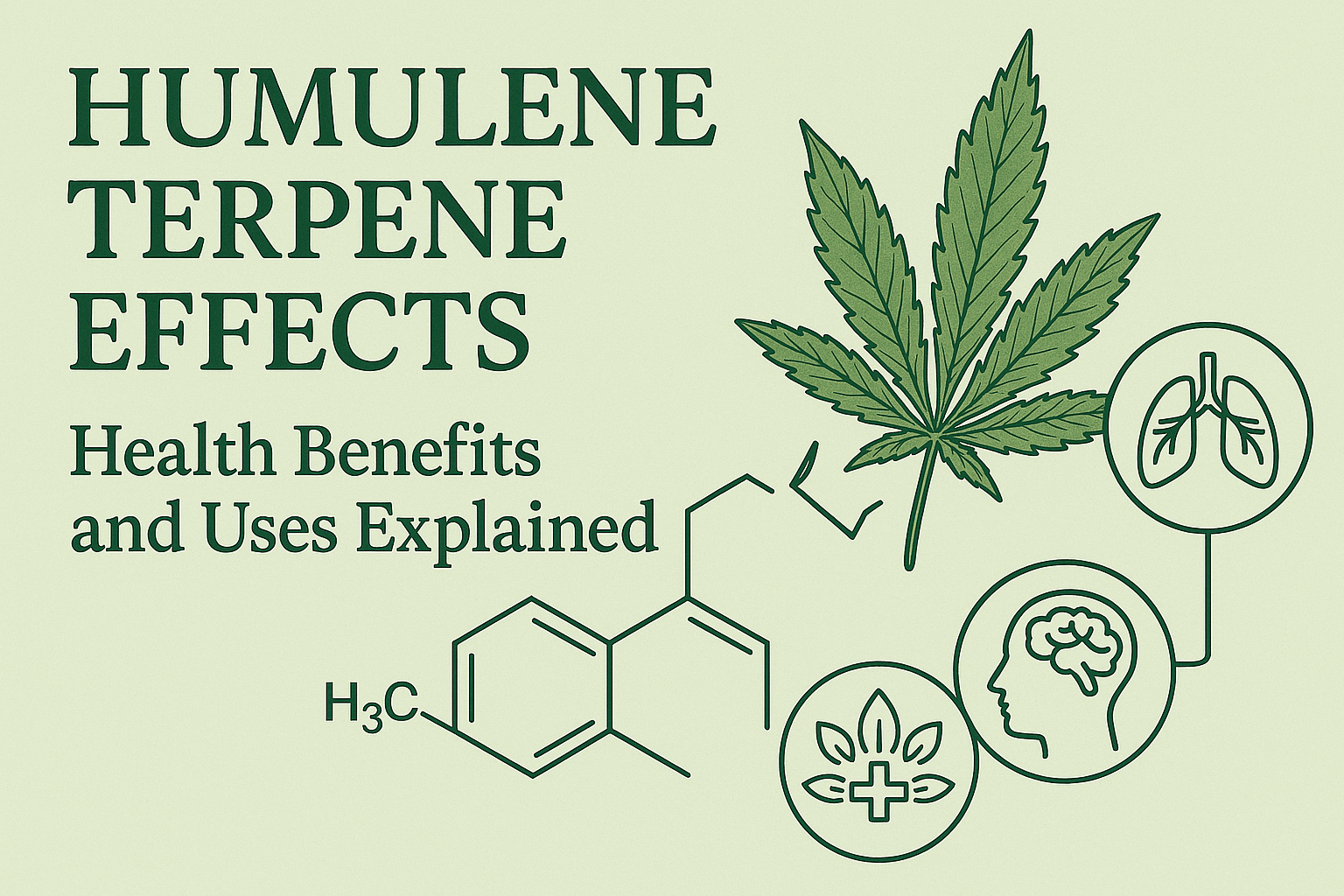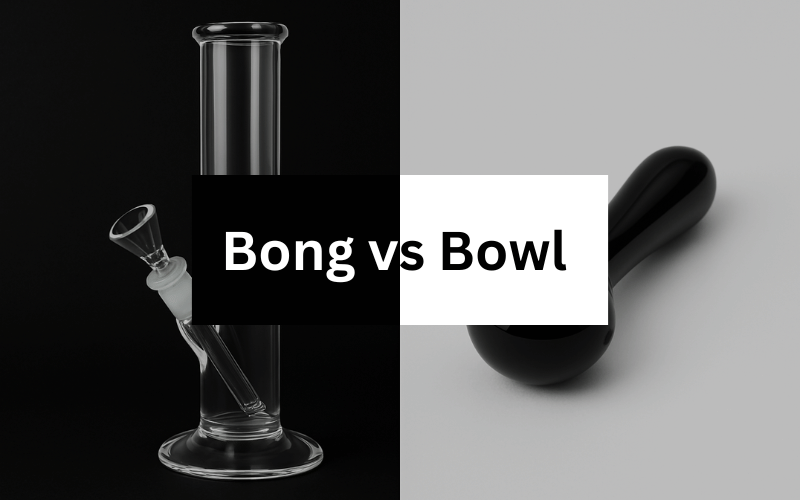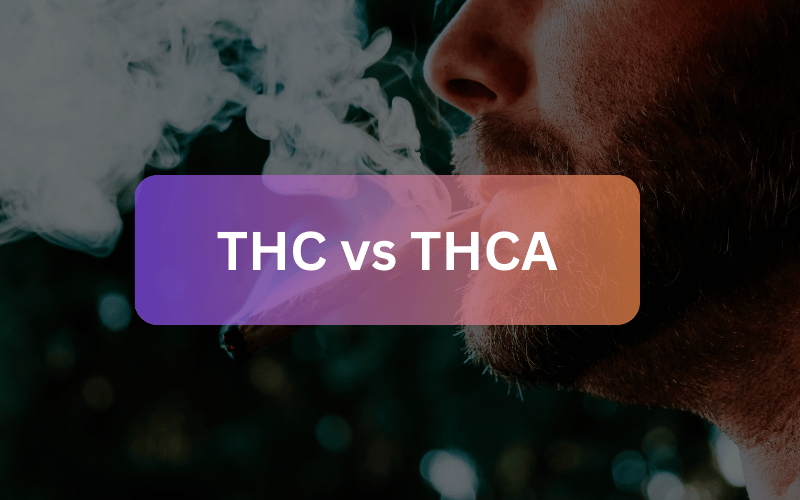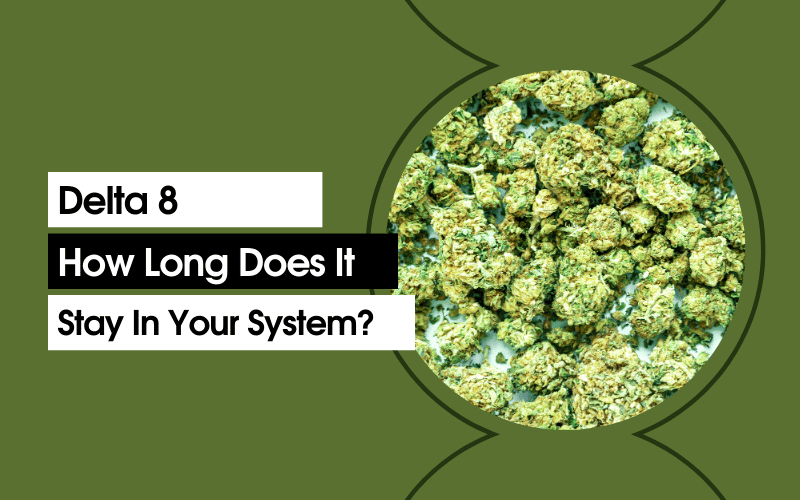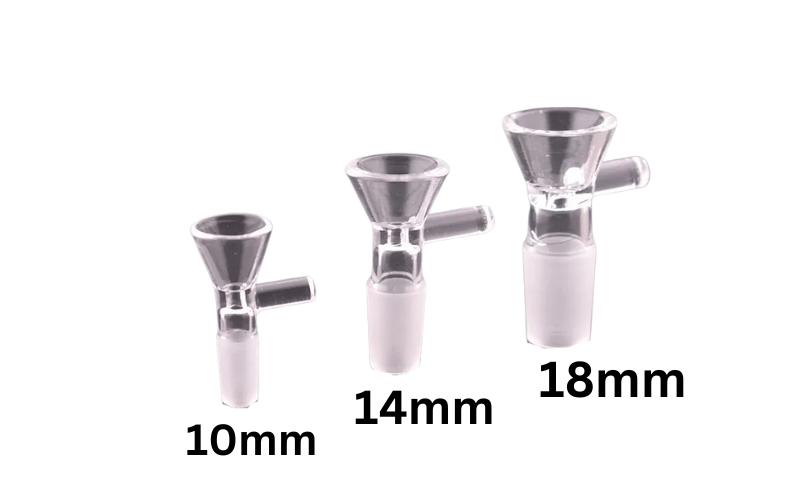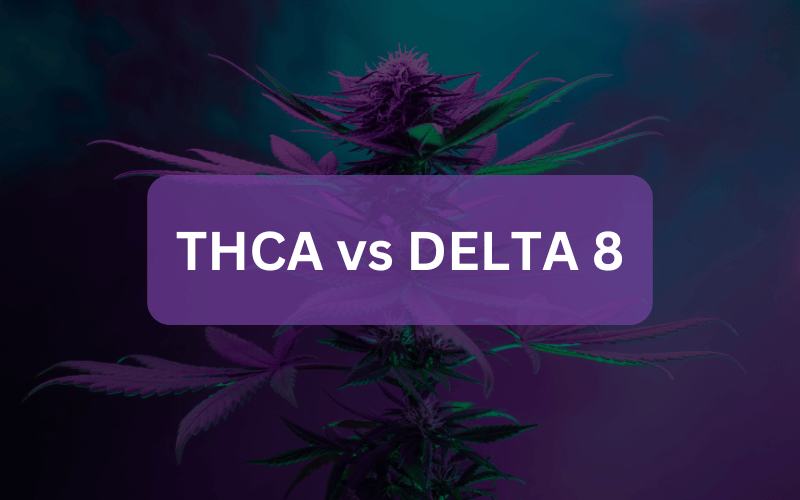
THCa vs Delta 8: Understanding Key Differences & Benefits
Posted by Tom Wittneben on
Curious about the differences between THCa vs Delta 8? THCa is a non-psychoactive cannabinoid in raw cannabis that turns into THC when heated. Delta 8, however, is mildly psychoactive, offering a more relaxed high compared to Delta 9 THC. This article explores their unique properties, benefits, and how they can be used.
Key Takeaways
-
THCa is a non-psychoactive cannabinoid that can provide therapeutic benefits, including anti-inflammatory properties, without the intoxication associated with THC, requiring heat to convert into its psychoactive form.
-
Delta 8 is a minor cannabinoid known for its milder psychoactive effects compared to Delta 9 THC, making it a preferable option for those seeking therapeutic benefits with reduced intensity.
-
The legality of THCa is generally straightforward at the federal level, while Delta 8’s legal status varies by state, necessitating consumer awareness of local regulations when considering their use.
What is THCa?
THCa, or tetrahydrocannabinolic acid, is a thca natural cannabinoid found in live hemp and cannabis plants that can naturally occur. Unlike its more famous counterpart, THC, THCa does not produce psychoactive effects in its natural form. Instead, it offers a host of unique benefits that have garnered increasing attention within the cannabis community. When exposed to heat through a process called decarboxylation, THCa converts to THC, the compound responsible for the characteristic high associated with cannabis.
One of the fascinating aspects of THCa is its versatility. It can be consumed in various forms, such as raw, tinctures, and edibles, which preserve its non-psychoactive properties until heated. This makes THCa an appealing option for those seeking the therapeutic benefits of cannabis without the intoxicating effects.
Research into THCa and other cannabinoids continues to unveil new possibilities, making it an exciting area of study for both scientists and consumers alike.
What is Delta 8?
Delta 8 is a minor cannabinoid derived from hemp and cannabis, known for its mild psychoactive effects. Unlike Delta 9 THC, which is the primary psychoactive compound in cannabis, Delta 8 offers a more subdued experience. This makes it an attractive option for individuals who seek the therapeutic benefits of cannabinoids without the intense high.
The production of Delta 8 typically involves converting CBD through a process known as isomerization. This method not only makes Delta 8 more accessible but also allows it to be derived from hemp, ensuring it remains within legal parameters in many regions.
As we explore further, you’ll see how Delta 8’s unique properties and production methods set it apart from other cannabinoids.
Extraction and Production Methods
Understanding the extraction and production methods for THCa and Delta 8 is crucial for appreciating their purity and potency. While THCa is extracted from cannabis plants using cold processes to preserve its natural state, Delta 8 is typically produced by converting CBD through an isomerization process.
These methods ensure that each cannabinoid maintains its unique properties, offering distinct experiences for consumers.
THCa Extraction
THCa is primarily extracted from cannabis plant material using several methods, including CO2 extraction, ethanol extraction, and hydrocarbon extraction. Each of these methods offers unique advantages, ensuring that the THCa remains in its natural, non-psychoactive state. Winterization is a crucial step in the extraction process, involving the dissolution of extracts in ethanol and freezing them to eliminate unwanted lipids and waxes, thereby enhancing the purity of the final product.
Following extraction, distillation is utilized to isolate THCa, requiring multiple heating and cooling stages under vacuum conditions to achieve a high level of purity. Additionally, solventless extraction methods, such as rosin pressing, are employed to produce THCa without the use of solvents, relying instead on mechanical processes.
Filtration techniques are also applied to eliminate particulates and impurities, further enhancing the quality of THCa products.
Delta 8 Production
Delta 8 is commonly synthesized from CBD through a process called isomerization. This process involves rearranging the molecular structure of CBD to transform it into Delta 8, often requiring specific acids as catalysts. The isomerization process is complex and requires specialized equipment and knowledge, making home production unadvisable due to safety concerns.
Through this method, Delta 8 is produced in a controlled environment, ensuring consistency and quality in the final product. This accessibility and the mild psychoactive effects of Delta 8 make it a popular choice among consumers seeking an alternative to Delta 9 THC.
Chemical Structure and Bioavailability
The chemical structure and bioavailability of cannabinoids play a significant role in how they affect the body. Bioavailability refers to the extent and rate at which the active ingredient is absorbed and becomes available at the site of action.
When consumed via vapes and flowers, the bioavailability of cannabinoids like THCa and Delta 8 is estimated to be between 30-50%, with an onset time typically around 5-10 minutes.
THCa Structure
THCa’s chemical structure includes a carboxylic acid group, which is responsible for its lack of intoxicating effects. This carboxylic acid group must be removed through a process called decarboxylation, which occurs when THCa is exposed to heat, converting it to THC. This process is essential to understanding why THCa remains non-psychoactive in its raw form and only produces psychoactive effects once it has been heated.
The extraction methods for THCa, such as CO2, ethanol, and hydrocarbon extraction, are designed to maintain its integrity and natural properties. Winterization removes unwanted waxes and lipids, ensuring the purity of the THCa extract. These cold methods are crucial for preserving the cannabinoid’s natural state, making THCa a valuable component of cannabis products for those seeking non-psychoactive benefits.
Delta 8 Structure
Delta 8 THC is a cannabinoid derived from hemp and cannabis with distinct structural characteristics that set it apart from other cannabinoids, including hemp derived cannabinoids. Unlike THCa, Delta 8 lacks a carboxylic acid group, which allows it to interact more effectively with cannabinoid receptors in the body. This structural difference is key to understanding why Delta 8 produces psychoactive effects, albeit milder than those of Delta 9 THC.
The ability of Delta 8 to bind with cannabinoid receptors results in its psychoactive properties, providing users with a softer, more balanced euphoria compared to Delta 9 THC. This makes Delta 8 an appealing option for those seeking the benefits of cannabinoids without the intense high associated with Delta 9.
Effects on the Body
Both THCa and Delta 8 interact with the body’s endocannabinoid system, influencing their therapeutic potential. While THCa provides the full effects of THC upon conversion, Delta 8 is noted for its milder psychoactive effects.
Understanding these effects is crucial for consumers seeking specific therapeutic benefits from these cannabinoids.
THCa Effects
Studies suggest that THCa may possess anti-inflammatory and neuroprotective properties, making it an attractive option for managing conditions such as arthritis and neurodegenerative diseases. Research indicates that THCa may help reduce inflammation and protect neural health, offering therapeutic benefits without causing intoxication.
The non-psychoactive nature of THCa means it can provide therapeutic benefits without the high associated with THC. This makes it suitable for individuals seeking relief from inflammation and other conditions without experiencing psychoactive effects.
The potential benefits of THCa continue to be explored, highlighting its significance in cannabinoid research.
Delta 8 Effects
Delta 8 THC is known to produce psychoactive effects when consumed, due to its structural properties that allow it to effectively bind with cannabinoid receptors. Users often report that the effects of Delta 8 are less intense and shorter in duration compared to Delta 9 THC, making it a more manageable option for those seeking a milder psychoactive experience.
Delta 8 has been noted for producing effects such as relaxation and euphoria, typically with lower anxiety levels compared to Delta 9 THC. Its potential for pain relief and anxiety reduction, combined with its milder euphoric effects, makes Delta 8 a favorable choice for those who prefer a softer psychoactive experience.
Legal Status
The legal status of THCa and Delta 8 varies significantly, adding a layer of complexity to their use and availability. While THCa is federally legal if it contains less than 0.3% Delta 9 THC, Delta 8’s legality fluctuates by state and is influenced by federal regulations.
Understanding these legal nuances is essential for consumers to navigate the cannabinoid market safely.
THCa Legal Status
THCa is federally legal if derived from hemp and contains less than 0.3% Delta 9 THC, ensuring its compliance with federal law. There are no federal laws specifically targeting the sale of THCa, which remains legal in 2025. However, local regulations may impose additional restrictions, highlighting the importance of understanding regional legalities.
The legal landscape for THCa varies, and while it is generally considered legal at the federal level, consumers must remain aware of local laws that could impact its availability and use. This variability underscores the importance of staying informed about the legal situation in one’s area.
Delta 8 Legal Status
The 2018 Farm Bill allowed the legal sale of Delta 8 THC derived from hemp, contributing to its increased accessibility. However, the legality of Delta 8 varies by state; some states allow its use, while others have imposed restrictions or outright bans. This patchwork of regulations can lead to confusion and impacts the availability of Delta 8 products.
Despite federal permissiveness, some states have enacted explicit bans on Delta 8 products, complicating its legal status. Additionally, concerns about potential contaminants in synthetic Delta 8 products highlight the need for careful consideration and regulation.
Consumption Methods
Cannabinoids like THCa and Delta 8 can be consumed through various methods, each offering different onset times and bioavailability.
Understanding these methods is key to maximizing the benefits of these cannabinoids while ensuring safe and effective use.
Consuming THCa
Common consumption methods for THCa include its raw form, tinctures, and edibles. These methods preserve the non-psychoactive properties of THCa until it is heated. THCa and Delta 8 oils typically have an onset time of around 15 to 20 minutes, while capsules can take about an hour to take effect.
The bioavailability of THCa and Delta 8 oils is estimated to be between 20% and 30%. However, a downside of capsules is that they cannot be easily split for smaller doses, which may limit their flexibility for some users.
Delta 8 Products
Delta 8 is available in various forms, including edibles, tinctures, and vape cartridges. Edibles provide a delayed onset of effects, making them a preferred option for those seeking prolonged relief. Vape cartridges, on the other hand, offer a method for quick consumption with variable potency, allowing for immediate effects.
Tinctures are a popular choice for Delta 8, allowing for precise dosing and versatile use. The choice of Delta 8 product can depend on the desired speed of effects and mode of consumption, with vaping taking five to twenty minutes and edibles requiring up to two hours to induce effects.
Potential Therapeutic Benefits
Both THCa and Delta 8 offer a range of therapeutic benefits, making them valuable additions to the cannabinoid repertoire. While THCa can alleviate pain and nausea without causing a high, Delta 8 is noted for its potential to enhance appetite and reduce anxiety and nausea.
THCa Benefits
THCa shows promise in addressing inflammation, making it potentially beneficial for conditions like arthritis. Studies indicate that THCa can reduce inflammation and may inhibit cancer cell proliferation in laboratory settings. These anti-inflammatory effects make THCa an exciting subject of cannabinoid research.
THCa can be consumed in non-psychoactive forms, such as juicing raw thca flower or incorporating it into smoothies, enhancing its nutritional value without psychoactive effects. Additionally, THCa can be applied topically through creams or balms, providing localized relief without intoxication.
These various therapeutic effects highlight the potent effects and potential health benefits of THCa.
Delta 8 Benefits
Users of Delta 8 report effects such as relaxation, euphoria, and pain relief. Approximately 71% of Delta 8 users have reported experiencing relaxation, highlighting its potential for stress relief. Additionally, Delta 8 is noted for its ability to reduce nausea, making it useful for patients undergoing treatments like chemotherapy.
Delta 8’s potential neuroprotective properties further enhance its appeal, offering benefits beyond mere relaxation and euphoria. As research continues, the full spectrum of Delta 8’s therapeutic benefits will become clearer, solidifying its place in the cannabinoid landscape.
Side Effects and Safety
Understanding the side effects and safety of THCa and Delta 8 is crucial for informed consumption. While both cannabinoids offer therapeutic benefits, they also come with potential adverse effects that users should be aware of.
THCa Side Effects
THCa is considered safer due to its natural origins and non-psychoactive nature. In its unconverted form, THCa does not have major side effects, making it a lower-risk option for therapeutic use. However, when heated and converted to THC, side effects such as altered vision, paranoia, increased heart rate, and dry mouth can occur.
Possible side effects of consuming THCa in its heated form include drowsiness or tiredness, though experiences may vary among users. While the risks are lower when unheated, it is important to be aware of the potential for side effects when THCa is converted to THC.
Delta 8 Side Effects
Potential side effects of Delta 8 include dry mouth, red eyes, and short-term memory impairment. These side effects mirror those of Delta 9 THC but are typically less prevalent and intense, making Delta 8 a milder option for those sensitive to the stronger effects of Delta 9.
Delta 8 may also affect how medications are metabolized in the liver, highlighting the importance of consulting a healthcare professional before use. Understanding these potential adverse effects is essential for safe and informed consumption of Delta 8 products.
Drug Testing Implications
Drug testing can result in positive outcomes for both THCa and Delta 8 due to their relationship with THC. While THCa itself is unlikely to appear on standard drug tests, its conversion to THC upon heating can result in a positive test.
Similarly, Delta 8 can trigger positive results on drug tests due to its chemical similarity to Delta 9 THC.
THCa and Drug Tests
THCa does not directly result in a positive drug test, but it can convert to THC when heated, leading to potential detection. While THCa is not typically detected in standard drug screenings, its transformation into THC through heating means it can lead to a positive test result. This conversion is crucial for understanding the implications of consuming THCa and the potential for positive drug test outcomes.
Delta 8 THC can also convert to THC and may be detected in drug tests similarly to THCa. This similarity underscores the importance of being aware of how these cannabinoids can impact drug testing results.
Delta 8 and Drug Tests
Delta 8 can trigger positive results on drug tests due to its structural resemblance to Delta 9 THC. This structural similarity means that Delta 8 can cause a positive result on drug tests, just like Delta 9.
When THCa is consumed in a method that involves heating, the resulting THC can be detected in drug tests as THC-COOH. Delta 8 THC can result in positive drug test outcomes due to its structural resemblance to Delta 9 THC, making it important to consider these implications before consuming Delta 8 products.
Comparing THCa and Delta 8 with Delta 9 THC
Comparing THCa and Delta 8 with Delta 9 THC highlights the unique properties and benefits of each cannabinoid. While THCa serves as a precursor to Delta 9 THC, Delta 8 is a distinct cannabinoid with its own set of effects and legal considerations.
Understanding these differences is crucial for making informed choices about cannabinoid use.
THCa vs Delta 9
Unlike Delta 9 THC, THCa is non-psychoactive and does not produce a high unless transformed. THCa needs to be heated to convert to THC and produce psychoactive effects. This conversion process, known as decarboxylation, is essential for understanding how THCa functions as a chemical precursor to Delta 9 THC.
THCa might offer therapeutic benefits such as anti-inflammatory effects without causing a high, making it an appealing option for those seeking non-intoxicating relief. Research indicates that THCa provides a relaxing effect while not being as intensely intoxicating as Delta 9 THC. When converted to THC, THCa is generally considered more potent than Delta 8 THC.
Delta 8 vs Delta 9
Delta 8 THC is considered less potent than Delta 9 THC, providing milder psychoactive effects. Users typically experience a less intense high with Delta 8, making it a more manageable option for those sensitive to the stronger effects of Delta 9.
Delta 8’s effects are often described as evenly distributed throughout the body, whereas Delta 9 tends to produce a more head-centric high. This difference in user experiences underscores the unique properties of Delta 8, making it a distinct alternative to Delta 9 THC.
THCa vs Delta 8 Wrapped Up
In summary, THCa and Delta 8 offer unique benefits and experiences within the cannabinoid spectrum. THCa provides therapeutic effects without intoxication until heated, while Delta 8 offers a milder psychoactive experience compared to Delta 9 THC. Understanding their chemical structures, legal status, consumption methods, and therapeutic potentials is crucial for making informed decisions about cannabinoid use. As the research continues to evolve, so too will our understanding of these fascinating compounds, paving the way for new discoveries and applications.
Frequently Asked Questions
What is the main difference between THCa and Delta 8?
The main difference between THCa and Delta 8 lies in their psychoactivity; THCa is non-psychoactive in its raw form, while Delta 8 exhibits mild psychoactive effects. This distinction is crucial for those seeking different experiences from cannabinoid consumption.
How is THCa consumed?
THCa is typically consumed in its raw form, as tinctures, or in edibles, but it remains non-psychoactive until it is heated. This method allows users to benefit from its potential therapeutic properties without the effects associated with THC.
Is Delta 8 legal everywhere?
Delta 8 is not legal everywhere; its legality depends on state regulations, with some states imposing restrictions or bans despite the allowances set by the 2018 Farm Bill. Be sure to verify the laws in your state before purchasing.
Can THCa and Delta 8 show up on drug tests?
Yes, both THCa and Delta 8 can show up on drug tests, as THCa converts to THC when heated, and Delta 8 is chemically similar to Delta 9 THC, which is typically screened for in standard drug tests.
What are the therapeutic benefits of THCa?
THCa may provide therapeutic benefits through its anti-inflammatory and neuroprotective properties, potentially aiding conditions such as arthritis and neurodegenerative diseases without causing intoxication.

